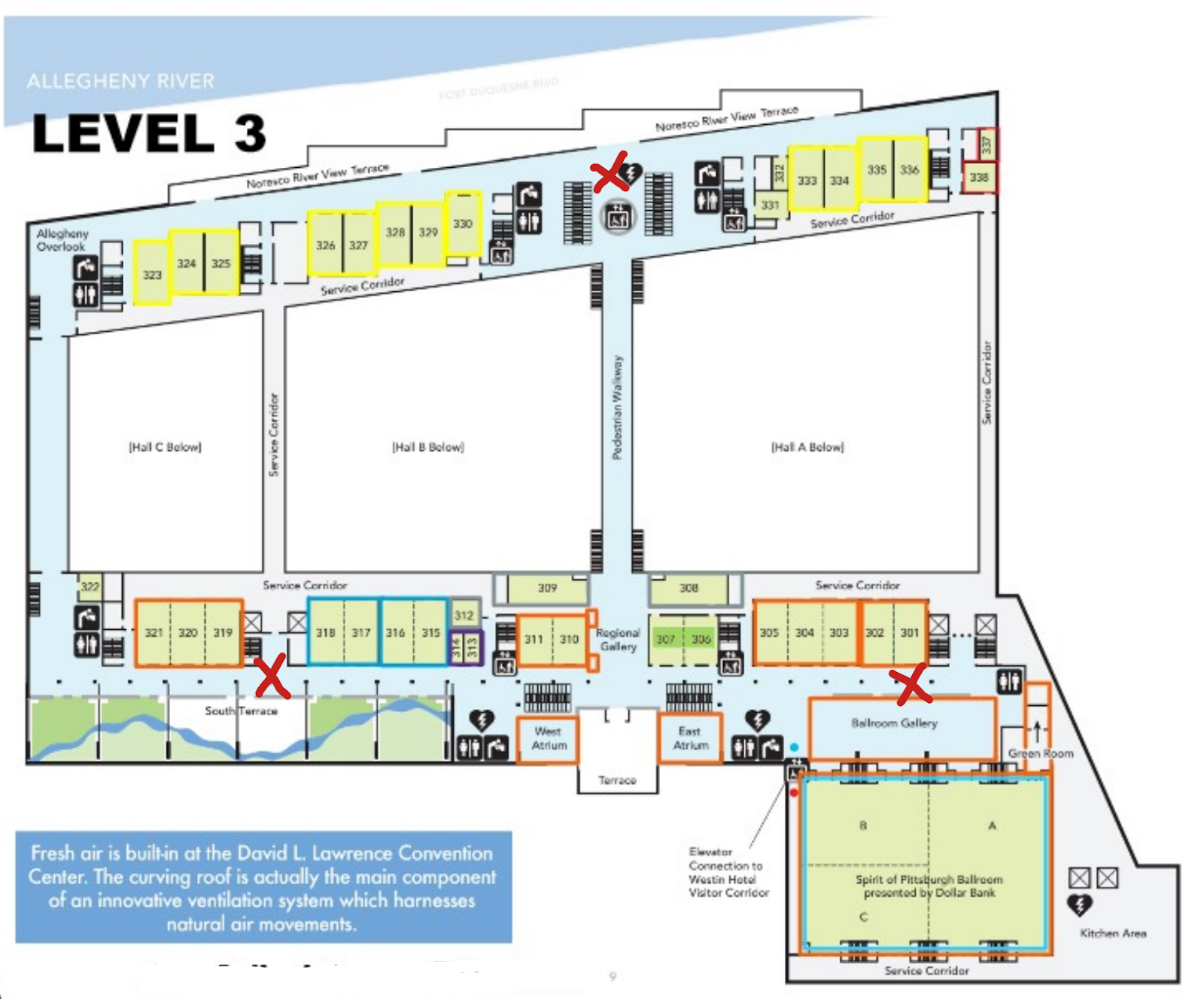








Cancelling your registration will remove your access to the event. If you proceed, you will no longer be able to participate or access event-related materials.
Deleting your account will remove your access to the event.
Need Technical Assistance? ✉ tech@vfairs.com










PROFESSIONAL CONFERENCE
Designed to Unlock the Leadership Potential of Professionals via sessions focused on cultural agility and skill development, the SASE Pro Conference includes exciting keynotes, small-group interactive and immersive workshops with nationally recognized trainers, panel discussions with senior executives from companies across industries, along with unique networking opportunities with like-minded professionals across the country.
Professional Registration includes full access to the overall program, including Pro Award ceremonies, workshops and panels, and the STEM Career Fair on Saturday.
Pro Packs have a buy 10 get 1 promo. Payment options include credit card and invoice.
$1125 Early Bird pricing ends 7/23/25, 11:59 PM PT
$1275 Regular pricing ends 9/17/25, 11:59 PM PT
Notes:
Pro Packs are not eligible for refunds.
Many companies will have prepaid registrations with an associated code. Check if your company has prepaid for your registration.
You will incur a cancellation fee if you pay with a credit card and later apply a prepaid code. Award Winners should register using this ticket.
Professional Registration includes full access to the overall program, including Pro Award ceremonies, workshops and panels, and the STEM Career Fair on Saturday.
Pro Packs have a buy 10 get 1 promo. Payment options include credit card and invoice.
$1125 Early Bird pricing ends 7/23/25, 11:59 PM PT
$1275 Regular pricing ends 9/17/25, 11:59 PM PT
Notes:
Pro Packs are not eligible for refunds.
Many companies will have prepaid registrations with an associated code. Check if your company has prepaid for your registration.
You will incur a cancellation fee if you pay with a credit card and later apply a prepaid code. Award Winners should register using this ticket.
Schedule at a Glance
(draft - subject to change)
Please consider having dinner with one of the trainers on Wednesday, October 1. This opportunity is meant to engage with the trainers leading your sessions and to network with fellow participants. Sharing a meal together provides an excellent setting to build relationships and enhance your overall conference experience.
Meals are not included in the event registration. Participants will be responsible for their own meal costs (approximately $25 per person). When registering, please note any dietary restrictions in the comments section. While we will make every effort to accommodate, we cannot guarantee all preferences will be met
SASE CEO Gigi Elbert and SASE Board President Tom Fernandez will present SASE plans for 2025 - 2026 and discuss executives' needs for the next year
Room 403-405
People, Innovation, and Purpose: In today’s rapidly evolving landscape, STEM leaders are called to do more than drive technical excellence—they must inspire people, spark innovation, and lead with purpose. This executive panel brings together senior leaders who have successfully navigated the shift from managing projects to shaping culture and strategy. Join us as we explore how to future-proof leadership, foster inclusive teams, and align groundbreaking innovation with a clear sense of purpose.
Room 403-405
LOCATION: 315-316
Abstract:
Feeling like the strategies that got you here aren't enough to take you there? What are some concrete steps you can take to self-navigate and maximize your journey with growing self-awareness, empowerment, and intentionality? Discover 3 transformative questions designed to clarify your unique path, accelerate your growth and unlock your next level of professional impact. Engage in group discussions as we explore how to leverage your strengths, clarify your career vision and reverse-engineer a purposeful plan to get you there – and become the leader you're meant to be, starting today.
Learning Outcomes:
Participants will walk away with answers to the questions of:

Christine Lee
I partner with high-capacity leaders to cut through the noise, reclaim focus, and elevate their performance – without burnout or compromise. My clients include executives at Google, Northrop Grumman, Collins RTX, US Bank, the NFL, Daimler Truck, and Sompo Intl. – high achievers who demand clarity, systems, and results.
Over the past 16 years, I’ve coached and advised across industries and disciplines, helping clients consistently achieve outcomes beyond what they thought was possible. My coaching approach is grounded in the belief that we must know ourselves to lead ourselves, and that transformational leadership is often personal before it becomes professional.
I earned my early stripes on Wall Street, where high-stakes execution was non-negotiable. Later, I transitioned into higher education and career counseling, helping clients navigate major inflection points, transitions and the gap between achievement and meaning, which gave me a deep understanding of the psychology behind sustainable growth, not just successful results.
And in building a high-performance piano studio, I developed a system of taking students from zero to elite performers under deadline and onstage. My core system included a repeatable framework for deliberate practice, resilience, and results under pressure. I invested in long-term, high-trust partnerships that helped my clients push past resistance, master complexity, and perform well – until their performance became an extension of who they simply were.
That same trust-based structure now fuels my coaching work with executives navigating professional environments. I help them align their identity and performance, and develop into being the kind of leaders others want to follow. The Five Voices framework blends strategic challenge with deeply personalized support, unlocking clarity, confidence, and real behavioral change in how we communicate and lead others.
Christine Lee has a B.A. in International Relations from Wellesley College and M.Ed. in Counseling from UCLA. She is a certified coach with GiANT Worldwide.
LOCATION: 317-318
Abstract:
Speaker/Comedian/Happiness Consultant Rajiv Satyal will help you become that better version of yourself—physically, mentally, emotionally, spiritually, and financially. And we’re going to do it all without feeling overwhelmed, or getting frustrated because we always seem to fail at self-improvement, or chucking in the towel and actually regressing. Our goal will be to help you build the better life that has seemed—for years—just out of reach.
The average person does the same thing over and over, expecting a different result: they think that if they just work a little harder, they’ll improve, and chase down this new life in the next two weeks. Because of that, they get nowhere—and in fact, risk going backwards because they get so frustrated that they give up, undoing any good self-improvement work they were doing. Instead, we begin by defining the roles you play in your life, both personally and professionally.
This system has worked for me for a decade. In 2013, I missed eight days of things I was supposed to do. In 2014, I missed four. In 2015, I missed two. And ever since 2016, I haven’t missed a single day, even though my goals are harder and higher than ever before.
I’ve traveled the world and have seen people I’ve helped with their own personal Year of the Hustle plans on their walls. It’s the only system they say has worked. To quote Radiohead, we are “fitter, happier, more productive.” They’ve achieved greater happiness and overall satisfaction in their personal and professional lives.
Learning Objective:
1. Cultivate Sustainable Self-Discipline: Attendees will learn to build a consistent and reliable system for self-improvement that avoids burnout. By understanding how to define their roles and set manageable goals, participants will develop the discipline to consistently pursue their personal and professional ambitions.
2. Enhance Productivity and Strategic Execution: This session will teach participants how to move past the "work harder, not smarter" fallacy. Employees will learn to identify and prioritize actions that drive meaningful results, leading to a significant increase in their overall productivity and effectiveness.
3. Improve Mental and Emotional Resilience: The "Art of the Hustle" provides a framework for overcoming the frustration and regression commonly associated with self-improvement efforts. Attendees will gain tools to build a more resilient mindset, enabling them to handle challenges with greater confidence and determination.
4. Drive Intentional Career and Personal Growth: Participants will learn to define their roles

Rajiv Satyal
Rajiv Satyal is an engineer-turned-communicator who blends sharp insight with engaging humor to inspire audiences worldwide. A former Procter & Gamble marketer, he has spoken for leading organizations including Google, Toyota, Cisco, General Mills, and the U.S. State Department. Rajiv has addressed audiences as large as 17,000, opened for top entertainers, and performed on all seven continents. His TEDx Talk, The Jester Is King, and his consulting work with the Standpoint Agency showcase his expertise in innovation, diversity, and personal branding. Equally at home in boardrooms and on global stages, Rajiv delivers presentations that are impactful, memorable, and uniquely entertaining.
Rajiv Satyal is a seasoned keynote speaker and corporate communicator with a background in engineering and brand management at Procter & Gamble. He has delivered high-impact presentations for Fortune 500 companies, leading universities, and the U.S. State Department. Rajiv has addressed audiences of up to 17,000 and performed on all seven continents, combining data-driven insight with compelling storytelling. His TEDx Talk, The Jester Is King, explores leadership through the lens of humor, innovation, and authenticity. Recognized by The New York Times, The Wall Street Journal, and The LA Times, Rajiv brings a distinctive, global perspective to science, technology, and business audiences.
Rajiv Satyal merges the creativity of a world-class entertainer with the clarity of a corporate strategist. An engineer by training and former Procter & Gamble marketer, Rajiv has spoken for clients such as Google, Toyota, Cisco, and General Mills, and performed in all seven continents. He has opened for household-name entertainers, gone viral with 100M+ views, and addressed audiences as large as 17,000. His TEDx Talk, The Jester Is King, and his work with the Standpoint Agency reflect his expertise in innovation, branding, and diversity. Known for blending humor with actionable insights, Rajiv leaves audiences informed, inspired, and entertained.
LOCATION: 413-414
Abstract:
We all live in an environment with an overwhelming number of commitments and goals, and we often wonder why we sometimes fail to achieve them. This workshop will help participants build a repeatable process for clarifying their goals and eliminating "the noise" that gets in the way. By empowering individuals to understand and leverage their intrinsic motivations, this session not only fuels personal success but also creates a more focused and resilient team. When individuals on a team are clear about their goals and understand the drivers behind their success, it leads to greater collective productivity and a more unified organizational vision.
Key Learning Objectives:

Sarita Vasa
Sarita Vasa is a Bay Area-based coach and facilitator who has guided thousands of leaders in executive presence, team development, women’s leadership, and high-impact communication.
A second-generation Indian American, Sarita is deeply committed to supporting the Asian community in both breaking through cultural barriers and embracing their unique strengths. For the past five years, she has been a coach and facilitator for McKinsey’s Asian Executive Leadership Program, helping leaders rise with authenticity and confidence.
Sarita’s work is anchored in a singular purpose: to help her clients meet challenges with courage and capacity. Known by clients as The Velvet Hammer, she brings a powerful blend of warmth and directness that supports transformational growth.
With 25 years of business experience, Sarita has spent half her career launching and leading a social enterprise, and the other half coaching, training, and facilitating across industries. She’s also a proud parent of two teenagers and brings her full, authentic self into every aspect of her work.
In her spare time, Sarita is either writing chapters of her future books, trying new workouts, traveling, or enjoying meaningful conversations with friends from all walks of life.
LOCATION: 401-402
Abstract:
Are you leading at your full potential—or is stress silently capping your impact?
In today’s high-speed world, even the most talented professionals can find themselves stuck in cycles of overwhelm, self-doubt, and reactive decision-making. This session reveals the hidden code behind what separates leaders who burn out from those who break through.
In just two hours, you’ll unlock neuroscience-backed strategies that top-performing leaders use to stay calm under pressure, inspire trust, and co-create innovative solutions—skills that will set you apart in any organization.
Through engaging activities, real stories, and powerful tools you can use immediately, you’ll not only reimagine your leadership but also get an insider look at the Leadership Capacity Accelerator—the program designed to help you become the leader everyone wants to follow.
This isn’t just another workshop—it’s the first step to unlocking the leader you’re meant to be.
Learning Objectives:
By the end of this session, you will:

Nozomi Morgan
Nozomi Morgan is an internationally recognized global leadership expert and CEO of Michiki Morgan Worldwide, an intercultural leadership development firm specializing in building high-capacity leaders and future-ready organizations to thrive in today’s complex world.
Known for her ability to transform complexity into clarity, Nozomi partners with global executives to navigate disruption, harness collective intelligence, and lead with purpose. Her unique approach blends neuroscience, strategic leadership frameworks, and cross-cultural insights gained from decades of experience across Asia, North America, and Europe.
A sought-after speaker featured in Forbes, Bloomberg, and Japan Times, Nozomi has worked with executives from Fortune 500 companies, high-growth organizations, and global nonprofits. She is celebrated for creating powerful learning experiences where leaders not only gain new perspectives but also walk away with practical tools to drive meaningful change.
Passionate about shaping the next era of leadership, Nozomi is also the host of the Boundaryless Leadership Podcast and serves on the boards of organizations strengthening U.S.–Japan relations. Her work is guided by a simple yet powerful belief: when leaders grow, organizations transform.
LOCATION: 409-410
Abstract:
How do you define what’s possible in your career? For many STEM professionals, the roadmap to leadership is shaped by observation—what colleagues have done, what managers suggest, and what the industry norm appears to be. But top leaders don’t follow typical timelines or trajectories. They shape their future with intentional vision and unconventional thinking.
In this interactive workshop, participants will challenge assumptions, expand their leadership mindset, and begin thinking like an executive long before they carry the title. Through thought-provoking exercises, strategic visioning, and goal-setting, participants will uncover limiting beliefs, design a bold leadership vision, and create an actionable roadmap toward Director, VP, or Executive-level roles.
When high-potential leaders think and act like executives, they increase their capacity to lead larger teams, drive cross-functional collaboration, and align their work with enterprise-level goals. This workshop helps unlock that next level—creating more strategic, engaged, and future-ready leaders in your organization.
Participants will walk away with:
A clearer understanding of what sets executive leaders apart
A leadership vision that fuels self-motivation and team inspiration
Tools to shift from technical expert to strategic influencer
A roadmap to accelerate advancement with clarity and confidence
Participants will learn how to:
Expand Strategic Perspective
Move beyond day-to-day execution to long-term, enterprise thinking
Identify assumptions and inherited limits that constrain leadership growth
Increase contribution to innovation, strategic planning, and systems-level improvement
Create a Compelling Leadership Vision
Craft a bold, motivating vision that aligns with organizational direction
Inspire others by articulating a clear “why” behind their leadership
Boost ownership of team outcomes through personal clarity and direction
Strategize for Executive-Level Success
Set long-range, outcome-focused goals tied to business impact
Identify gaps in readiness and close them with intentional development
Accelerate succession readiness for senior leadership roles
Break Through Limiting Beliefs and Habits
Spot internal patterns that slow leadership growth (perfectionism, fear of visibility, etc.)
Shift from reactive performance to intentional influence
Take greater responsibility for driving team alignment and results

Lawrence Huey
LOCATION: 411-412
Abstract:
For many professionals, leadership means navigating dual expectations: ingrained personal values and external professional norms. This session explores the necessary shift required to achieve success from doing it all to empowering others.
Grounded in organizational psychology and diverse leadership frameworks, participants will examine their internal beliefs and the impact of effective delegation to enhance their leadership impact and visibility. This improvement will result in increased productivity for both individuals and teams, driven by better decision-making through clear communication.
Session Outcomes:
Participants will walk away with:
Reframing leadership through a personal and psychological lens by moving from silent execution to strategic mindsets.
Recognizing how personal norms influence their leadership behaviors.
Practicing confident and clear delegation techniques, allowing you to be more effective and prominent in your role.
By enhancing your delegation skills, you'll acquire valuable tools and build confidence, enabling you to be more effective and prominent in your roles. This improvement will result in increased productivity for both individuals and teams, driven by better decision-making through clear communication.

Yon Na
Yon Na, PhD, is an organizational consultant and coach who helps leaders & teams create inclusive cultures and accelerate performance by applying organizational psychology principles.
Throughout her career, Yon has led Organizational Effectiveness and Leadership Development efforts in Fortune 100 and high-growth companies, including Warner Bros., The New York Times, Microsoft, Johnson & Johnson, and Nordstrom. She partners with her clients by leveraging research and assessments to design customized solutions.
Yon’s research area centers on the intersection of identity, culture, and leadership. She shares her peer- reviewed research on Asian women in leadership at conferences, companies, and colleges.
Yon holds a doctorate in Organizational Psychology from the California School of Professional Psychology at Alliant International University. Yon is an ICF-Credentialed (PCC) and Board Certified Executive Coach (BCC).

Leonna Choi Luc
Leonna Choi Luc is an impact-driven consultant and coach with a deep commitment to advancing equity, opportunity, and human potential. She collaborates with leaders and organizations to build strategic infrastructure, programs, and systems that create inclusive environments and drive effective talent and workforce development.
With a strong foundation in people and program operations, Leonna has guided clients across sectors in building sustainable frameworks and actionable strategies that align with their mission and values. Her work spans the full lifecycle of organizational growth—from developing equitable talent pipelines and leadership development initiatives to refining internal processes that operationalize long-term vision and impact.
Leonna brings a relational and systems-focused approach to every engagement, helping leaders and teams unlock potential, navigate change, and scale inclusive practices.
Leonna holds a degree in Sociology from the University of California, Los Angeles (UCLA), and is an ICF-Credentialed Certified Coach.
LOCATION: 411-412
Abstract:
This session is designed for mid-level professionals who feel challenged by the many priorities in their lives. In this reflective session, participants work through a framework to gain insight into areas where their lives feel out of balance.
Grounded in positive psychology, participants will learn how to define work-life integration for themselves and identify steps towards achieving it. This workshop equips individuals with habits for integration and resilience, demonstrating clear business value because participants will return with a refreshed perspective, which enhances interpersonal effectiveness.
Learning Objectives:
Participants will walk away with:
Understanding "balance" through the "integration" of work-life.
Awareness of areas of imbalance that can be shifted.
Creating a clear plan of action for achieving work-life integration.
This workshop equips you with habits for integration and resilience, demonstrating a clear business value because you will return with a refreshed perspective that enhances your interpersonal effectiveness.

Yon Na
Yon Na, PhD, is an organizational consultant and coach who helps leaders & teams create inclusive cultures and accelerate performance by applying organizational psychology principles.
Throughout her career, Yon has led Organizational Effectiveness and Leadership Development efforts in Fortune 100 and high-growth companies, including Warner Bros., The New York Times, Microsoft, Johnson & Johnson, and Nordstrom. She partners with her clients by leveraging research and assessments to design customized solutions.
Yon’s research area centers on the intersection of identity, culture, and leadership. She shares her peer- reviewed research on Asian women in leadership at conferences, companies, and colleges.
Yon holds a doctorate in Organizational Psychology from the California School of Professional Psychology at Alliant International University. Yon is an ICF-Credentialed (PCC) and Board Certified Executive Coach (BCC).

Leonna Choi Luc
Leonna Choi Luc is an impact-driven consultant and coach with a deep commitment to advancing equity, opportunity, and human potential. She collaborates with leaders and organizations to build strategic infrastructure, programs, and systems that create inclusive environments and drive effective talent and workforce development.
With a strong foundation in people and program operations, Leonna has guided clients across sectors in building sustainable frameworks and actionable strategies that align with their mission and values. Her work spans the full lifecycle of organizational growth—from developing equitable talent pipelines and leadership development initiatives to refining internal processes that operationalize long-term vision and impact.
Leonna brings a relational and systems-focused approach to every engagement, helping leaders and teams unlock potential, navigate change, and scale inclusive practices.
Leonna holds a degree in Sociology from the University of California, Los Angeles (UCLA), and is an ICF-Credentialed Certified Coach.
LOCATION: 315-316
Abstract:
For early career leaders, trust is the foundation on which influence, collaboration, and credibility are built. Yet stepping into leadership, especially with limited experience or when leading more seasoned colleagues, can make establishing trust feel daunting. Without it, teams may hold back ideas, avoid accountability, or question your decisions. With it, teams engage, collaborate, and deliver stronger results.
Participants will learn how to build trust intentionally through two critical skills: deep listening and navigating difficult conversations with behavioral clarity and compassion. These approaches help leaders communicate in ways that strengthen credibility, reduce misunderstandings, and foster psychological safety.
Through interactive activities, reflective prompts, and real-world practice, participants will gain tools to build trust early in their leadership journey, repair it when necessary, and maintain it over time—creating a foundation for a confident leadership presence that inspires loyalty, accountability, and collaboration.
Learning Objectives:
• Decode the Four Distinctions of Trust
Understand the four key elements of trust – Competence, Reliability, Care, and Sincerity – and how they shape team relationships and leader credibility. Establish the importance of trust and build the business case for it in today's professional environment.
• Why Trust Really Matters - Recognizing the Four Distinctions of Trust
Identify and understand the four key elements of trust by Charles Feltman—Competence, Reliability, Care, and Sincerity and how they shape team relationships and credibility.
• Building Credibility Through Deep Listening
Learn and apply deep listening behaviors such as reflecting back, asking clarifying questions, and pausing before responding that make team members feel heard and valued.
• Extended Version (90 minutes)
Navigating Difficult Conversations with Trust
Practice using a behavioral framework to address challenging topics constructively, focusing on observable actions and shared goals rather than assumptions or personality.

Lucia Kamm
Lucia Kamm, MBA, PCC is an executive leadership coach, facilitator, and speaker who blends strategic clarity, discipline, and emotional intelligence to help leaders at all levels thrive. She brings two decades of experience scaling teams and strengthening leadership capability, including serving as Head of People for Wayfair’s 5,000-person technology organization and as Chief of Staff to its CTO, leading global transformation through COVID and multiple C-level transitions. Her career spans leadership roles at Procter & Gamble, Tripadvisor, and McKinsey, where she drove innovation, strategy, and talent development across global markets.
Lucia’s work equips leaders to cultivate “inner leadership” — a quiet confidence and focused presence that fosters adaptability and resilience in the face of constant change. Drawing on her background in business, tech, and holistic practices, she helps leaders navigate complexity with clarity, strengthen their influence, and inspire teams to evolve both technologically and emotionally.
Brochure Version
LOCATION: 317-318
Abstract:
Comedian Rajiv Satyal isn't just a performer—he's an engineer-turned-communicator who left a successful career at Procter & Gamble to find his true passion. In his hilarious and insightful talk, "Gruntled," he shares his personal journey of navigating career growth, from the corporate office to performing on all seven continents. With a blend of humor and practical advice, Rajiv helps high-achieving professionals reframe their approach to work, offering actionable tips for finding lasting happiness and fulfillment. This is a session on how to build a career that balances ambition with genuine purpose.
Learning Objectives:
Improve Personal Well-Being and Resilience: Participants will learn practical tools and mindset shifts to find personal and professional happiness, empowering them to manage stress and avoid burnout.
Enhance Communication and Collaboration: Attendees will gain insights into how to communicate more effectively and build stronger professional relationships, which is essential for successful teamwork and collaboration.
Foster Creativity and Innovation: The session will equip employees with a new perspective on how to refine their creativity and innovation, enabling them to contribute fresh ideas and solutions to their teams.
Develop Strategic Decision-Making Skills: Participants will receive a comedic but practical approach to simplify complex decisions, manage expectations, and prioritize what truly matters, leading to more focused and impactful work.
Cultivate Self-Leadership and Growth: By focusing on the concept of "being gruntled," attendees will learn to take intentional actions and adopt behaviors that prepare them to be more effective

Rajiv Satyal
Rajiv Satyal is an engineer-turned-communicator who blends sharp insight with engaging humor to inspire audiences worldwide. A former Procter & Gamble marketer, he has spoken for leading organizations including Google, Toyota, Cisco, General Mills, and the U.S. State Department. Rajiv has addressed audiences as large as 17,000, opened for top entertainers, and performed on all seven continents. His TEDx Talk, The Jester Is King, and his consulting work with the Standpoint Agency showcase his expertise in innovation, diversity, and personal branding. Equally at home in boardrooms and on global stages, Rajiv delivers presentations that are impactful, memorable, and uniquely entertaining.
Rajiv Satyal is a seasoned keynote speaker and corporate communicator with a background in engineering and brand management at Procter & Gamble. He has delivered high-impact presentations for Fortune 500 companies, leading universities, and the U.S. State Department. Rajiv has addressed audiences of up to 17,000 and performed on all seven continents, combining data-driven insight with compelling storytelling. His TEDx Talk, The Jester Is King, explores leadership through the lens of humor, innovation, and authenticity. Recognized by The New York Times, The Wall Street Journal, and The LA Times, Rajiv brings a distinctive, global perspective to science, technology, and business audiences.
Rajiv Satyal merges the creativity of a world-class entertainer with the clarity of a corporate strategist. An engineer by training and former Procter & Gamble marketer, Rajiv has spoken for clients such as Google, Toyota, Cisco, and General Mills, and performed in all seven continents. He has opened for household-name entertainers, gone viral with 100M+ views, and addressed audiences as large as 17,000. His TEDx Talk, The Jester Is King, and his work with the Standpoint Agency reflect his expertise in innovation, branding, and diversity. Known for blending humor with actionable insights, Rajiv leaves audiences informed, inspired, and entertained.
LOCATION: 413-415
Abstract: Many of us have been taught to suppress emotions like anger and rage, believing that calmness is a sign of leadership strength. This workshop challenges that belief, showing you how unlearning this behavior can lead to greater insight and power. You will learn to identify the triggers of your rage, get curious about its source, and express it in a safe and constructive way. By helping your team members understand and manage this powerful emotion, you can unlock a new source of energy for creative problem-solving and honest communication. This not only builds greater psychological safety but also allows your company to harness a previously untapped source of motivation for breakthrough ideas and solutions.
Key Learning Objectives:
Learn to identify what makes you rageful, allowing you to understand and manage triggers before they impact your team or projects.
Get curious about your own rage and express it in a safe container, modeling emotional intelligence for your team.
Avoid the judgment traps that come with anger, creating a more open and non-judgmental environment for team communication.
Discover how your rage can be a source of power, insight, and leadership guidance, unlocking a new level of problem-solving and authenticity that directly benefits your company.

Sarita Vasa
Sarita Vasa is a Bay Area-based coach and facilitator who has guided thousands of leaders in executive presence, team development, women’s leadership, and high-impact communication.
A second-generation Indian American, Sarita is deeply committed to supporting the Asian community in both breaking through cultural barriers and embracing their unique strengths. For the past five years, she has been a coach and facilitator for McKinsey’s Asian Executive Leadership Program, helping leaders rise with authenticity and confidence.
Sarita’s work is anchored in a singular purpose: to help her clients meet challenges with courage and capacity. Known by clients as The Velvet Hammer, she brings a powerful blend of warmth and directness that supports transformational growth.
With 25 years of business experience, Sarita has spent half her career launching and leading a social enterprise, and the other half coaching, training, and facilitating across industries. She’s also a proud parent of two teenagers and brings her full, authentic self into every aspect of her work.
In her spare time, Sarita is either writing chapters of her future books, trying new workouts, traveling, or enjoying meaningful conversations with friends from all walks of life.
This executive session provides leaders with a proven playbook to transform disruption into innovation, directly enhancing team adaptability and driving measurable business growth.
In today’s volatile business environment, executives face relentless disruption, increasing complexity, and unprecedented pressure to deliver results. Traditional leadership approaches—rooted in control and problem-solving—are no longer enough.
In just one hour, this highly interactive session introduces The Executive Playbook—a practical framework to help leaders strengthen resilience, foster collective intelligence, and reframe challenges as opportunities for growth. Participants will walk away with immediately applicable tools to lead with purpose, inspire innovation, and drive team adaptability—even under pressure.
By the end of this one-hour workshop, executives will be able to:
Understand the principles of resilience and future-readiness in a volatile business environment.
Learn what builds trust, creativity, and alignment within teams.
Strengthen adaptability and presence as essential leadership practices.
Inspire higher engagement and productivity across the organization.
Implement strategies that immediately enhance team resilience and agility.

Nozomi Morgan
Nozomi Morgan is an internationally recognized global leadership expert and CEO of Michiki Morgan Worldwide, an intercultural leadership development firm specializing in building high-capacity leaders and future-ready organizations to thrive in today’s complex world.
Known for her ability to transform complexity into clarity, Nozomi partners with global executives to navigate disruption, harness collective intelligence, and lead with purpose. Her unique approach blends neuroscience, strategic leadership frameworks, and cross-cultural insights gained from decades of experience across Asia, North America, and Europe.
A sought-after speaker featured in Forbes, Bloomberg, and Japan Times, Nozomi has worked with executives from Fortune 500 companies, high-growth organizations, and global nonprofits. She is celebrated for creating powerful learning experiences where leaders not only gain new perspectives but also walk away with practical tools to drive meaningful change.
Passionate about shaping the next era of leadership, Nozomi is also the host of the Boundaryless Leadership Podcast and serves on the boards of organizations strengthening U.S.–Japan relations. Her work is guided by a simple yet powerful belief: when leaders grow, organizations transform.
LOCATION: 401-402
Abstract: Many talented professionals in the STEM field hit career plateaus, unsure of what it takes to reach the next level. This dynamic and actionable session, led by seasoned tech executive Hope Yin, will provide a proven playbook for taking control of your professional journey. Hope will share the S.T.E.A.M. strategy that helped her and countless others successfully navigate the complexities of career advancement.
By attending, you'll gain the practical tools and mindset shifts needed not only for your next promotion but also to create a bigger impact at work. This will benefit your team by fostering a more proactive and engaged workforce, while the company benefits from having employees who are strategically focused on achieving their next-level goals.
What You'll Learn:
Identify the key factors that lead to successful promotions, giving you a clear roadmap to advance and become a more effective leader on your team.
Understand and apply the S.T.E.A.M. strategy to your everyday work, enabling you to proactively seek out opportunities that benefit both your career and your team's success.
Expand the application of the S.T.E.A.M. strategy beyond promotion to create bigger impacts and greater influence, positioning you as a valuable asset to your team and the entire organization.

Hope Yin
Hope Yin is an award-winning Tech Executive who has become an entrepreneur. She is a Coach and Speaker for STEM professionals. She partners with global companies and executives to elevate their leadership presence, foster team cultures, and drive business growth.
As a sought-after speaker, Hope has inspired over 10,000 individuals, including at the world's largest conference for Women in Computing. Her mission is to support leaders to elevate their power, expand their potential, and amplify their legacy.
As an ICF PCC-certified Executive Coach, Founder & Owner of Blueprint Coaching, Hope works with tech leaders to overcome challenges, build powerful personal brands, and achieve strategic career success.
With a proven track record at two Fortune 200 companies, Hope's journey from an immigrant to an influencer, and from an engineer to an established tech executive has given her unique insights and strategies for supporting others.
Hope holds three M.S. degrees in Engineering.
Room 403-405
People, Innovation, and Purpose: In today’s rapidly evolving landscape, STEM leaders are called to do more than drive technical excellence—they must inspire people, spark innovation, and lead with purpose. This executive panel brings together senior leaders who have successfully navigated the shift from managing projects to shaping culture and strategy. Join us as we explore how to future-proof leadership, foster inclusive teams, and align groundbreaking innovation with a clear sense of purpose.
Room 403-405
Room 306-307
Attendees are invited to write short affirmations or uplifting messages on star-shaped cards. These will be compiled and donated to a local hospital or elderly care facility as a gesture of encouragement and support.


Abstract:
Have you ever noticed co-workers who don’t work as hard—or deliver less impact—yet still get promoted and recognized? If you’ve ever felt invisible despite your results, you’re not alone. In today’s fast-paced environment, leaders often don’t have time to uncover who’s truly making a difference unless that impact is made visible.
This workshop empowers high-performing professionals to communicate their value with clarity, confidence, and authenticity. Through practical exercises and real-world examples, participants will learn how to tell compelling stories, articulate their unique contributions, and advocate for themselves—without sounding arrogant or self-promotional.
When talented employees learn to effectively communicate their value, it boosts team visibility, strengthens cross-functional collaboration, and supports succession planning. This workshop helps turn hidden high performers into visible leaders—making it easier for managers to develop, retain, and reward key talent.
Participants will walk away with:
The ability to communicate accomplishments in ways that feel confident and culturally authentic
Tools to elevate individual and team visibility without self-promotion discomfort
A stronger sense of ownership and engagement in their own development
Practical strategies to increase recognition, sponsorship, and opportunity
Participants will learn how to:
Communicate Impact with Confidence
Deliver clear, engaging messages about their work that resonate with managers and peers
Replace vague status updates with vivid, outcomes-based stories
Help their leaders easily advocate for them in performance and talent reviews
Highlight Unique Value Without Overshadowing Others
Identify and articulate what sets them apart in how they approach challenges and contribute to results
Increase personal brand recognition across teams and functions
Elevate team success by modeling inclusive and confident visibility practices
Celebrate Wins to Build Culture and Morale
Reframe acknowledgment as a leadership skill, not personal praise
Create a ripple effect of positivity and recognition within their team
Reinforce a culture of appreciation, inclusion, and shared success
Make Bold, Strategic Requests
Ask for opportunities, mentorship, and feedback with clarity and courage
Stop waiting for recognition and start initiating development conversations
Contribute to a culture where proactive leadership is modeled and encouraged

Lawrence Huey
Are you pushing hard to achieve results but feeling the cost of stress, exhaustion, and endless demands?
In today’s fast-paced, high-pressure environment, leaders are expected to deliver more with less, often at the expense of their own well-being. This highly interactive session reveals the hidden code behind expanding leadership capacity, enabling you to achieve extraordinary results without sacrificing yourself in the process.
By attending, you’ll learn how to shift from a cycle of reactivity and burnout to a state of creativity, clarity, and influence. These skills not only enhance your ability to lead with energy and resilience but also ripple outward, helping your team stay engaged, reducing costly turnover, and contributing to your company's sustainable growth.
By learning to sustain high performance without burnout, your team member will return with resilience strategies that improve decision-making, team engagement, and long-term company success.
By the end of this workshop, participants will be able to:
Understand the neuroscience of burnout and how to prevent it.
Shift from reactive to creative leadership to improve decision-making.
Use simple, practical tools to stay grounded and resilient under stress.
Strengthen engagement and reduce stress contagion within their teams.
Bring back strategies that sustain energy and drive long-term results.

Nozomi Morgan
Nozomi Morgan is an internationally recognized global leadership expert and CEO of Michiki Morgan Worldwide, an intercultural leadership development firm specializing in building high-capacity leaders and future-ready organizations to thrive in today’s complex world.
Known for her ability to transform complexity into clarity, Nozomi partners with global executives to navigate disruption, harness collective intelligence, and lead with purpose. Her unique approach blends neuroscience, strategic leadership frameworks, and cross-cultural insights gained from decades of experience across Asia, North America, and Europe.
A sought-after speaker featured in Forbes, Bloomberg, and Japan Times, Nozomi has worked with executives from Fortune 500 companies, high-growth organizations, and global nonprofits. She is celebrated for creating powerful learning experiences where leaders not only gain new perspectives but also walk away with practical tools to drive meaningful change.
Passionate about shaping the next era of leadership, Nozomi is also the host of the Boundaryless Leadership Podcast and serves on the boards of organizations strengthening U.S.–Japan relations. Her work is guided by a simple yet powerful belief: when leaders grow, organizations transform.
This session is designed for mid-level professionals who want to create a work environment that prioritizes an effective team culture. Grounded in organizational psychology and systems thinking, participants will learn how to positively influence their work environment, benefiting themselves and others for lasting professional and business success.
Participants will return to their workplaces equipped with practical tools to enhance team culture and engage effectively with colleagues, leading to improved team performance, reduced conflict, and better business results.
Participants will walk away with:
Understanding what contributes to an effective team culture.
Connecting leadership behaviors and team effectiveness.
Creating clear action steps to enable themselves and team members to feel engaged.
By engaging with colleagues more effectively and enhancing team culture, you will improve team performance, reduce conflict, and drive better business results.

Yon Na
Yon Na, PhD, is an organizational consultant and coach who helps leaders & teams create inclusive cultures and accelerate performance by applying organizational psychology principles.
Throughout her career, Yon has led Organizational Effectiveness and Leadership Development efforts in Fortune 100 and high-growth companies, including Warner Bros., The New York Times, Microsoft, Johnson & Johnson, and Nordstrom. She partners with her clients by leveraging research and assessments to design customized solutions.
Yon’s research area centers on the intersection of identity, culture, and leadership. She shares her peer- reviewed research on Asian women in leadership at conferences, companies, and colleges.
Yon holds a doctorate in Organizational Psychology from the California School of Professional Psychology at Alliant International University. Yon is an ICF-Credentialed (PCC) and Board Certified Executive Coach (BCC).

Leonna Choi Luc
Leonna Choi Luc is an impact-driven consultant and coach with a deep commitment to advancing equity, opportunity, and human potential. She collaborates with leaders and organizations to build strategic infrastructure, programs, and systems that create inclusive environments and drive effective talent and workforce development.
With a strong foundation in people and program operations, Leonna has guided clients across sectors in building sustainable frameworks and actionable strategies that align with their mission and values. Her work spans the full lifecycle of organizational growth—from developing equitable talent pipelines and leadership development initiatives to refining internal processes that operationalize long-term vision and impact.
Leonna brings a relational and systems-focused approach to every engagement, helping leaders and teams unlock potential, navigate change, and scale inclusive practices.
Leonna holds a degree in Sociology from the University of California, Los Angeles (UCLA), and is an ICF-Credentialed Certified Coach.
Abstract:
You’ve built your career as a problem solver, high-achiever, and someone who always delivers. But what if those same strengths—when overused—are quietly holding you and your team back?
In this interactive session designed for mid-career leaders with management experience, we’ll explore how behaviors that once helped you excel—like always being the expert, moving fast, or driving for results—can unintentionally limit your team’s learning and growth. We’ll examine how cultural conditioning and identity shape these unconscious habits, and hear what it’s like to be on the other side of them.
Drawing on Liz Wiseman’s work on Accidental Diminishers, we’ll identify your own accidental tendencies and practice shifting into leadership habits that invite more engagement, creativity, and ownership from your team. You’ll leave with greater self-awareness, a more nuanced sense of when to step up or step back, and practical tools to help you grow from a high performer into a true multiplier of others.
Learning Objectives:
Learn how the leadership habits you’ve developed as a high performer may show up as Accidental Diminisher tendencies that unintentionally limit your team’s long-term performance and growth.
Reflect on the cultural, familial, and professional origins of your leadership patterns—so you can better understand and take ownership of them.
Understand what it’s like to be on the receiving end of your leadership behaviors.
Identify the emotional or situational triggers that activate your default habits, so you can choose a different response.
Experiment with new leadership behaviors that multiply, rather than diminish, the intelligence and impact of your team.

Eileen Chang
Eileen Chang is an executive coach who partners with purpose-driven leaders committed to making leadership more collaborative and humane—starting with how they lead themselves. With a deeply relational approach, she helps leaders reconnect with their values, question inherited cultural narratives of success, and lead with greater self-awareness and authenticity. Eileen is known for her presence, depth, and ability to hold space for complex emotional and systemic dynamics. Her clients span industries, with a special focus on leaders in tech, women, Asian American leaders, and other leaders of color navigating high-pressure environments. She serves as a coach and facilitator at the Haas School of Business and as faculty and coach with McKinsey’s Asian Executive Leadership Program. Eileen holds a BA from Harvard University, an MBA from UC Berkeley’s Haas School of Business, and a certificate in Integral Coaching from New Ventures West.
Aaron Lee
Hope Yin
Professional Employee Networks (PENs) have the potential to be powerful engines of visibility, development, and equity, but too often they are powered by passion without structure, which leads to burnout and missed opportunities. In this session, we’ll explore a framework for transforming your PEN into a platform that drives real organizational impact while advancing the leadership journey of your members. Whether you’re just getting started or leading a mature network, this session will provide actionable clarity to strengthen your advocacy, increase visibility, and align your leadership with business outcomes.
Advocacy and Visibility
Professional Development
Creating a Supportive Community
Addressing Systemic Barriers
Enhancing Organizational Culture
While many PENs already offer programs that address these needs, challenges such as limited funding and resources can impede their effectiveness. Passion and energy are primary drivers for participation, but can easily lead to burnout and exhaustion. Additionally, PEN leaders often seek to develop leadership skills through their volunteer roles but may struggle to gain recognition for their contributions, as these programs are sometimes perceived as being irrelevant.
In this workshop, we will outline practical processes and procedures for creating a PEN structure that not only advocates for the Asian community but also supports leadership development and career advancement. Participants will learn how to enhance the impact of their PEN, overcome common challenges, and ensure their efforts contribute to meaningful career growth for their members.
Key Learning Objectives:
Building an Effective PEN: Develop an PEN that effectively serves both the company and the PEN member community, aligning its goals with organizational objectives.
Utilizing Executive Sponsorships and Networks: Leverage relationships with executive sponsors and professional networks to secure resources and support for PEN initiatives.
Designing Leadership Development Programs: Implement events and programs that integrate leadership development opportunities for members.
Aligning PEN Leadership with Corporate Culture: Structure PEN leadership roles and processes to reflect and support the broader corporate culture.

Hope Yin
Hope Yin is an award-winning Tech Executive who has become an entrepreneur. She is a Coach and Speaker for STEM professionals. She partners with global companies and executives to elevate their leadership presence, foster team cultures, and drive business growth.
As a sought-after speaker, Hope has inspired over 10,000 individuals, including at the world's largest conference for Women in Computing. Her mission is to support leaders to elevate their power, expand their potential, and amplify their legacy.
As an ICF PCC-certified Executive Coach, Founder & Owner of Blueprint Coaching, Hope works with tech leaders to overcome challenges, build powerful personal brands, and achieve strategic career success.
With a proven track record at two Fortune 200 companies, Hope's journey from an immigrant to an influencer, and from an engineer to an established tech executive has given her unique insights and strategies for supporting others.
Hope holds three M.S. degrees in Engineering.

Aaron Lee
Aaron’s passion is to build thriving cultures in organizations. He has consulted and spoken with leaders in small businesses and Fortune 100 companies, across construction, healthcare, and higher education.
Aaron currently serves as CEO of Leaders Rising Network, an agency dedicated to elevating culture performance for their clients. He teaches leadership at the Bon Secours Memorial College of Nursing and hosts the Leaders Rising podcast.
Aaron is an ACC-certified coach, the author of The New Generation Leader and a graduate of the University of Richmond and holds a Master of Divinity.
Aaron lives in Richmond, Virginia, with his wife and 2 daughters.
Your presence matters! A powerful executive presence is how people perceive your ability to lead and manage. If you’re a high-potential manager, your presence can be the difference maker between being seen as a strategic leader or not.
And for your company? A strong presence builds organizational credibility, fosters trust, and wins respect both internally and from industry thought leaders and decision makers.
Do you know the best way to showcase your executive thought leadership?
If you’re like most people, you probably think the best way to impress your audience is by showing how smart you are and demonstrating your knowledge.
That’s a mistake. The “smart” approach often leaves the impression of being operational and executional.
Instead, to own the room you must position yourself as a strategic thought leader and give decision-makers confidence in your ability to lead through uncertainty on the big stage.
If you’re looking to establish your leadership potential and boost your influence and credibility across senior stakeholders and industry icons, then join this thought-provoking workshop on improving your executive presence.
In this interactive session you’ll learn how to:
Establish an executive presence that instills confidence in your ability to lead at higher levels.
Pitch the big picture and rapidly project strategic or industry thought leadership.
Stay focused and confident under pressure and handle unexpected credibility derailers.

Rebecca Okamoto
Attendees are invited to write short affirmations or uplifting messages on star-shaped cards. These will be compiled and donated to a local hospital or elderly care facility as a gesture of encouragement and support.


LOCATION: 315-316
Leaders at all levels, from early career to seasoned executives, face the challenge of making clear, strategic decisions while balancing the demands of high performance. Yet the ability to lead strategically begins with self-awareness: knowing how your mental, emotional, physical, and spiritual energy levels affect your thinking, actions, and relationships. Without this awareness, leaders risk reactive decision-making, diminished presence, and burnout.
This workshop uses Tony Schwartz’s Energy Matrix framework to help leaders recognize the interplay between energy quantity (high vs. low) and energy quality (positive vs. negative). By mapping where they operate throughout the day, leaders will uncover patterns that either support or sabotage their strategic leadership capacity. Participants will learn how to shift into high-positive energy states that promote clarity, focus, and effective influence regardless of career stage.
Through guided reflection, practical exercises, and actionable strategies, participants will leave with a personal energy action plan to manage themselves more effectively, make better decisions under pressure, and sustain the energy required to lead strategically in any environment.
LEARNING OBJECTIVES
• Understanding the Energy Matrix
Learn the four quadrants of Tony Schwartz’s Energy Matrix: High Positive, High Negative, Low Positive, and Low Negative, and how they influence decision-making and leadership effectiveness. • Cultivating Self-Awareness Through Energy Mapping
Assess personal energy patterns throughout the day, identifying triggers and habits that move you between productive and unproductive states.
• Shifting into Strategic Energy States
Discover techniques to intentionally move into high-positive energy states that support clear thinking, creative problem-solving, and strong presence.
• Extended version (90 minutes):
Designing an Energy Action Plan for Sustainable Leadership
Create a personalized strategy for maintaining optimal energy levels, preventing burnout, and leading with purpose and clarity over the long term.

Lucia Kamm
Lucia Kamm, MBA, PCC is an executive leadership coach, facilitator, and speaker who blends strategic clarity, discipline, and emotional intelligence to help leaders at all levels thrive. She brings two decades of experience scaling teams and strengthening leadership capability, including serving as Head of People for Wayfair’s 5,000-person technology organization and as Chief of Staff to its CTO, leading global transformation through COVID and multiple C-level transitions. Her career spans leadership roles at Procter & Gamble, Tripadvisor, and McKinsey, where she drove innovation, strategy, and talent development across global markets.
Lucia’s work equips leaders to cultivate “inner leadership” — a quiet confidence and focused presence that fosters adaptability and resilience in the face of constant change. Drawing on her background in business, tech, and holistic practices, she helps leaders navigate complexity with clarity, strengthen their influence, and inspire teams to evolve both technologically and emotionally.
Brochure Version
LOCATION: 317-318
Abstract: Many of us feel discomfort with disagreement, viewing it as inherently harmful or damaging to relationships. But, learning how to disagree well actually strengthens trust and credibility, and it is a critical skill to master for career advancement. This session is designed for early-career professionals (and anyone else who struggles with disagreement!), providing them with a foundational understanding of how to navigate difficult conversations with confidence and composure. By empowering early-career team members to engage in productive disagreement, this training helps foster a culture of open communication and psychological safety, leading to improved team dynamics and project outcomes. Participants will leave this session with strategies for managing the emotions associated with disagreement and practical phrases they can use to share their point of view, even when it disagrees with others'.
Learning Objectives: By the end of this session, participants will be able to:
Practice active listening to fully grasp different perspectives before responding, fostering stronger working relationships with their peers.
Apply interpersonal communication skills to navigate conflict constructively within their team, and reduce miscommunication and project roadblocks by addressing issues directly and with composure.
Use specific verbal and nonverbal communication techniques to share their point of view with confidence and composure, increasing their confidence in sharing innovative ideas and speaking up on behalf of their projects.
Identify and manage the emotions associated with professional disagreement, such as discomfort or defensiveness.

Sarah-SoonLing Blackburn
LOCATION: 411-412
Abstract: In the age of AI, a leader's communication and presentations must be both impactful and personal. This session moves beyond the hype to provide practical demonstrations for leveraging AI as a powerful co-pilot. Participants will be equipped with tools that can support them to be more strategic, productive, and creative.
You will learn how to apply the principles of strategic communication to the capabilities of various AI tools and connect the art of public speaking to the practical application of AI. Hope is a seasoned professional speaker and former technology executive, and she will showcase a range of AI-powered platforms she uses daily to help draft, rehearse, and improve delivery. By empowering you and your team to use these tools, you will not only reduce preparation time but also deliver more engaging and influential presentations. In turn, this will directly improve your executive presence and enhance the company's messages and communications.
By the end of this session, participants will be able to:
Apply principles of strategic communication with the support of AI tools to create more impactful and targeted messages.
Utilize AI platforms to draft, rehearse, and refine public speaking skills, leading to greater confidence and a more polished delivery.
Integrate AI into their daily workflow to reduce preparation time for presentations and speeches, freeing up more time for strategic work.
Enhance their executive presence by leveraging AI to deliver more engaging, personalized, and influential communications.

Hope Yin
Hope Yin is an award-winning Tech Executive who has become an entrepreneur. She is a Coach and Speaker for STEM professionals. She partners with global companies and executives to elevate their leadership presence, foster team cultures, and drive business growth.
As a sought-after speaker, Hope has inspired over 10,000 individuals, including at the world's largest conference for Women in Computing. Her mission is to support leaders to elevate their power, expand their potential, and amplify their legacy.
As an ICF PCC-certified Executive Coach, Founder & Owner of Blueprint Coaching, Hope works with tech leaders to overcome challenges, build powerful personal brands, and achieve strategic career success.
With a proven track record at two Fortune 200 companies, Hope's journey from an immigrant to an influencer, and from an engineer to an established tech executive has given her unique insights and strategies for supporting others.
Hope holds three M.S. degrees in Engineering.
LOCATION: 413-414
Abstract: Many of us rely on our industry knowledge and domain expertise to deliver outcomes, which is a solid formula for success—but a limited one. This workshop reveals how a deeper connection to your personal values can be a powerful source of energy, clarity, and leadership guidance. Participants will learn how to define their values and use them as important levers in their professional journey. This alignment will not only help them clarify their own brand and career path but will also give them the tools to influence and inspire their team, creating a more authentic and impactful leadership presence that ultimately benefits the company's culture and reputation.
Key Learning Objectives:
Debunk the myth of having a separate "work persona" versus a "personal persona," building more authenticity and trust within the team.
Make the connection between your personal values and leadership presence, allowing you to influence your team with greater authenticity and purpose.
Understand how to leverage your values for influence, defining your professional brand, and getting promoted, which in turn strengthens the company's leadership pipeline and brand.

Sarita Vasa
Sarita Vasa is a Bay Area-based coach and facilitator who has guided thousands of leaders in executive presence, team development, women’s leadership, and high-impact communication.
A second-generation Indian American, Sarita is deeply committed to supporting the Asian community in both breaking through cultural barriers and embracing their unique strengths. For the past five years, she has been a coach and facilitator for McKinsey’s Asian Executive Leadership Program, helping leaders rise with authenticity and confidence.
Sarita’s work is anchored in a singular purpose: to help her clients meet challenges with courage and capacity. Known by clients as The Velvet Hammer, she brings a powerful blend of warmth and directness that supports transformational growth.
With 25 years of business experience, Sarita has spent half her career launching and leading a social enterprise, and the other half coaching, training, and facilitating across industries. She’s also a proud parent of two teenagers and brings her full, authentic self into every aspect of her work.
In her spare time, Sarita is either writing chapters of her future books, trying new workouts, traveling, or enjoying meaningful conversations with friends from all walks of life.
LOCATION: 401-402
Leading within a Professional Employee Network requires influence without authority, vision amidst complexity, and relational intelligence to rally others. In this interactive session, you'll discover your unique leadership voice and learn how to use it more effectively to advocate, collaborate, and lead. We’ll equip you with a powerful framework to elevate your impact as a leader inside and outside your PEN. When every voice is heard and harnessed, collaboration becomes exponential.
Discover Your Leadership Voice: Gain insight into your natural leadership tendencies, strengths, and blind spots.
Build Influence Without Authority: Learn how to lead effectively through relational trust and voice dynamics.
Strengthen Team Collaboration: Develop a language and approach to help your PEN leadership team function with greater clarity, trust, and shared responsibility.
Create a Culture of Advocacy: Use your leadership voice to influence culture, elevate others, and create space for growth.

Christine Lee
I partner with high-capacity leaders to cut through the noise, reclaim focus, and elevate their performance – without burnout or compromise. My clients include executives at Google, Northrop Grumman, Collins RTX, US Bank, the NFL, Daimler Truck, and Sompo Intl. – high achievers who demand clarity, systems, and results.
Over the past 16 years, I’ve coached and advised across industries and disciplines, helping clients consistently achieve outcomes beyond what they thought was possible. My coaching approach is grounded in the belief that we must know ourselves to lead ourselves, and that transformational leadership is often personal before it becomes professional.
I earned my early stripes on Wall Street, where high-stakes execution was non-negotiable. Later, I transitioned into higher education and career counseling, helping clients navigate major inflection points, transitions and the gap between achievement and meaning, which gave me a deep understanding of the psychology behind sustainable growth, not just successful results.
And in building a high-performance piano studio, I developed a system of taking students from zero to elite performers under deadline and onstage. My core system included a repeatable framework for deliberate practice, resilience, and results under pressure. I invested in long-term, high-trust partnerships that helped my clients push past resistance, master complexity, and perform well – until their performance became an extension of who they simply were.
That same trust-based structure now fuels my coaching work with executives navigating professional environments. I help them align their identity and performance, and develop into being the kind of leaders others want to follow. The Five Voices framework blends strategic challenge with deeply personalized support, unlocking clarity, confidence, and real behavioral change in how we communicate and lead others.
Christine Lee has a B.A. in International Relations from Wellesley College and M.Ed. in Counseling from UCLA. She is a certified coach with GiANT Worldwide.

Aaron Lee
Aaron’s passion is to build thriving cultures in organizations. He has consulted and spoken with leaders in small businesses and Fortune 100 companies, across construction, healthcare, and higher education.
Aaron currently serves as CEO of Leaders Rising Network, an agency dedicated to elevating culture performance for their clients. He teaches leadership at the Bon Secours Memorial College of Nursing and hosts the Leaders Rising podcast.
Aaron is an ACC-certified coach, the author of The New Generation Leader and a graduate of the University of Richmond and holds a Master of Divinity.
Aaron lives in Richmond, Virginia, with his wife and 2 daughters.
Jeff Lovell
Jeff Lovell is a senior leadership advisor and the President of Leaders Rising Network, where he partners with executive teams to build healthy leadership pipelines, align culture with strategy, and create environments where people thrive. With a career devoted to leadership development and people strategy, Jeff is known for bringing clarity, depth, and a grounded presence to the work of leadership.
As a certified practitioner in relational intelligence frameworks and tools, Jeff helps leaders grow in the most essential leadership skill: self-awareness. His coaching goes beyond quick wins, helping leaders see their blind spots, navigate complexity, and lead with both confidence and humility.
Jeff serves as a culture architect, working with organizations to design cultures that solve real business problems, not just sound good in theory. He believes culture is only valuable when it enables better decision-making, stronger relationships, and sustained growth.
Jeff brings his conviction that the best leaders don’t simply climb higher alone, they elevate and empower others, as well.
LOCATION: 409-410
First impressions matter!
A great introduction can be a powerful door opener to new possibilities. However, in today’s reality you only have seconds to turn your introduction into a career or business building opportunity.
Everyone knows we only get one shot to make the right first impression. But few are really prepared to answer the question, “What do you do?”
If you dread introducing yourself, struggle to explain what you do, or want to improve your executive presence, then it’s time to develop your personal brand. Join the Perfect Introduction workshop and learn step-by-step how to create a powerful personal brand, AND introduce yourself perfectly in 20 words, or less.
In this interactive 60-minute workshop you will learn how to:
Confidently introduce, network and promote yourself or your business in any situation.
Introduce yourself in 20 words or less with 5 different templates.
Improve your personal brand presence and make a lasting, positive impression.
And as a bonus, you’ll also learn a how to pitch yourself in 15 seconds. It’s the perfect way for you and your organization to stand out when you go around the room at a networking event.

Rebecca Okamoto
Location: Ballroom Gallery
SASE Science Initiative (SSI) hosts a combined science networking and research poster symposium. Aimed to create more avenues for attendees to learn how to start projects or get into research, start conversations with professionals, and show off their own skills. Poster sessions are a relatively informal way to present research to your peers and hear about others' projects!
SSI will also be having judges with awards for Overall Best and People's Choice, along with some honorable mentions. These awards look great on a resume or CV, so make sure to put your best foot forward!
Room: 306-307
An opportunity for attendees to participate in a light-hearted vocal performance session. Participants are welcome to perform solo or in groups and enjoy a relaxed environment for social interaction.
Room: 306-307
An opportunity for attendees to participate in a light-hearted vocal performance session. Participants are welcome to perform solo or in groups and enjoy a relaxed environment for social interaction.
Date/Time: Thursday, Oct. 2 from 4PM - 5:30PM
Location: Hall A Concourse
Description: A bit of festival fun to kick off convention season! Come relax with some traditional and modern games and win awesome prizes at our new event: SASEGames!
List of Games:
Cup Pong
Tangrams
Kendama
Chopstick Relay
Memory
Trivia
LOCATION: 301-302
Join us for SASEhack, a hybrid hackathon that is open to undergraduate students only!
This year our hackers were challenged to Fuel Your Future by building tech that helps people navigate the pivotal life changes ahead. Hackers were to choose one of our three personas (Hillary the Hustler, Relocation Rachel, or Family Fred) and create an app, tool, or hardware solution that aligns with their goals. Our SC25 Hackathon team hosted workshops and spaces for folks to learn and code.
Listen in on our students' amazing project presentations!
Collegiate Welcome & Awards
Collegiate Welcome & Awards
Attendees are invited to write short affirmations or uplifting messages on star-shaped cards. These will be compiled and donated to a local hospital or elderly care facility as a gesture of encouragement and support.


Interested in meeting other SASE-ers across the regions, but don’t know where to start? Come ❄️Snowcialize❄️with us by writing facts about yourself on a piece of paper, and throw that crumpled ball across the room to let fate decide who picks it up! You’ll meet all kinds of folks trying to discover whose snowball you have too. ☃️
Room: 403-405
Hosted by Honeywell
Recent graduates face uncertainties transitioning to professional environments post-pandemic, navigating virtual learning and remote internships. This workshop will equip attendees with practical tools to ease the transition from college to career, addressing concerns like adapting to new work settings and coping with change effectively. Through discussion and insights, participants will build confidence in their ability to thrive through ongoing transitions in their careers.

Kate Todd
Honeywell
Honeywell
Kate Todd is a Project Engineer at Honeywell Aerospace in Phoenix, Arizona, specializing in cost reduction for mechanical engine components. She moved from South Korea, grew up in Florida, and earned a bachelor's degree in mechanical engineering from the University of Florida. Currently pursuing a Master's in Engineering Management at Arizona State University, she looks forward to sharing her journey of overcoming challenges during her academic and professional transitions to inspire others.
Room: 403-405
Hosted by Honeywell
Recent graduates face uncertainties transitioning to professional environments post-pandemic, navigating virtual learning and remote internships. This workshop will equip attendees with practical tools to ease the transition from college to career, addressing concerns like adapting to new work settings and coping with change effectively. Through discussion and insights, participants will build confidence in their ability to thrive through ongoing transitions in their careers.

Kate Todd
Honeywell
Honeywell
Kate Todd is a Project Engineer at Honeywell Aerospace in Phoenix, Arizona, specializing in cost reduction for mechanical engine components. She moved from South Korea, grew up in Florida, and earned a bachelor's degree in mechanical engineering from the University of Florida. Currently pursuing a Master's in Engineering Management at Arizona State University, she looks forward to sharing her journey of overcoming challenges during her academic and professional transitions to inspire others.
Room: 303-305
Hosted by Wabtec
At Wabtec, we design the technology that keeps global rail networks moving. In this workshop, you’ll step into the role of our engineers solving real-world challenges that boost engineering performance by applying data analytics for smarter operations. Together, we’ll explore problem-solving strategies that combine technical expertise with leadership skills. This session will not only show how we keep freight and transit on track but also equip you with the tools to drive innovation in your future career.

Huda Sarwar
Huda Sarwar is a Lead Diagnostic Specialist at Wabtec Corporation in Fort Worth, Texas. She has B.S. in Electrical Engineering and is currently pursuing Masters degree from Texas A&M. With over six years of experience in locomotive systems, reliability, and data-driven troubleshooting, she helps railroads worldwide keep freight moving safely and efficiently. She is committed to mentoring and leadership development. She enjoys connecting people, strengthen professional communities and inspire the next generation of engineers.
Room: 319-321
Presented by GE Vernova
Whether you know it or not everyone has a unique personal brand. As you launch your career, do you have a powerful, attractive brand that reflects the real you? Join us for a workshop to learn strategies to differentiate yourself and build your elevator speech.

Pavan Penkey
Power System Protection & Control Engineer, GE Vernova
Power System Protection & Control Engineer, GE Vernova
Pavan Penkey is an experienced Power System Protection & Control Engineer with over a decade of experience in designing, developing, and commissioning LV, MV, and HV protection schemes for mission-critical applications. He currently serves as Lead Protection and Control Engineer at GE Vernova Grid Solutions. Prior to this role, Pavan worked at Schweitzer Engineering Laboratories Inc for seven years as a Protection Engineering supervisor.
Pavan holds a Master of Science degree in Electrical Engineering and an Academic Certificate in Power System Protection & Relaying from the University of Idaho, as well as a bachelor’s degree in electrical and Electronics Engineering from Gitam University, India. He is presently pursuing a Ph.D. degree on a part-time basis at the University of Idaho.
His research interests include power system protection applications, Inverter-based resource integration and studies, offshore wind integration, hyperscale data center applications, microgrid applications, and protection challenges in microgrid and HVDC systems.
His research efforts and his collaboration with other distinguished engineers have led him to publish several papers. He is an IEEE senior member, currently serving as Chair for IEEE Palouse section and as Region 6 representative for the IEEE PES Chapters.

Timmy Wang
Senior Technical Product Manager, GE Vernova
Senior Technical Product Manager, GE Vernova
Timmy Wang is a Senior Technical Product Manager at GE Vernova and a 2023 graduate of the GE Digital Technology Leadership Program or known today as the Digital Technology Development Program. In his current role, Timmy leads and manages two applications, one which is a Manufacturing Execution System used by our operators on the shopfloor and the other being an operational data suite to visualize data from other applications. Timmy has been a past assignment leader to interns at the Schenectady site as well as a member of the Rochester Institute of technology recruiting team as well as supporting other universities in the northeast region. He is also a member of Asian Pacific Allies and Friends (APAF) supporting initiatives around the Capital Region of New York.

Sneha Sequeira
Aeroderivative Services ITR Engineer, GE Vernova
Aeroderivative Services ITR Engineer, GE Vernova
Sneha Sequeira is an Aeroderivative Services Inquiry-to-Remittance (ITR) Engineer at GE Vernova and a 2024 graduate of the GE Edison Engineering Development Program. In her current role, Sneha develops a diverse range of proposals to address the needs of GEVO’s customers, manages several execution projects including repowering existing Aeroderivative fleet, and leads the expansion of a proposal configuration tool for in-demand upgrades. Sneha is also committed to mentoring the next generation of engineers at GEVO. She is a member of the University Recruiting team within Asian Pacific Allies and Friends (APAF), supporting initiatives at UH and A&M. She also leads the Attract pillar for the Women’s Network Greater Houston Hub.

Neal Goswami
Senior Commercial Pricing Leader, GE Vernova
Senior Commercial Pricing Leader, GE Vernova
Neal Goswami is a Senior Commercial Pricing Leader at GE Vernova’s Gas Power business and a dedicated energy industry professional. He collaborates with commercial, technical, and cross-functional teams to develop and implement competitive pricing strategies, leveraging both his extensive experience and data-driven analysis. As an active member of the APAF Employee Resource Group (ERG), Neal leads collaboration initiatives between GE Vernova and SASE. He is also passionate about supporting students in their transition from campus to corporate environments.
Room: 319-321
Presented by GE Vernova
Whether you know it or not everyone has a unique personal brand. As you launch your career, do you have a powerful, attractive brand that reflects the real you? Join us for a workshop to learn strategies to differentiate yourself and build your elevator speech.

Pavan Penkey
Power System Protection & Control Engineer, GE Vernova
Power System Protection & Control Engineer, GE Vernova
Pavan Penkey is an experienced Power System Protection & Control Engineer with over a decade of experience in designing, developing, and commissioning LV, MV, and HV protection schemes for mission-critical applications. He currently serves as Lead Protection and Control Engineer at GE Vernova Grid Solutions. Prior to this role, Pavan worked at Schweitzer Engineering Laboratories Inc for seven years as a Protection Engineering supervisor.
Pavan holds a Master of Science degree in Electrical Engineering and an Academic Certificate in Power System Protection & Relaying from the University of Idaho, as well as a bachelor’s degree in electrical and Electronics Engineering from Gitam University, India. He is presently pursuing a Ph.D. degree on a part-time basis at the University of Idaho.
His research interests include power system protection applications, Inverter-based resource integration and studies, offshore wind integration, hyperscale data center applications, microgrid applications, and protection challenges in microgrid and HVDC systems.
His research efforts and his collaboration with other distinguished engineers have led him to publish several papers. He is an IEEE senior member, currently serving as Chair for IEEE Palouse section and as Region 6 representative for the IEEE PES Chapters.

Timmy Wang
Senior Technical Product Manager, GE Vernova
Senior Technical Product Manager, GE Vernova
Timmy Wang is a Senior Technical Product Manager at GE Vernova and a 2023 graduate of the GE Digital Technology Leadership Program or known today as the Digital Technology Development Program. In his current role, Timmy leads and manages two applications, one which is a Manufacturing Execution System used by our operators on the shopfloor and the other being an operational data suite to visualize data from other applications. Timmy has been a past assignment leader to interns at the Schenectady site as well as a member of the Rochester Institute of technology recruiting team as well as supporting other universities in the northeast region. He is also a member of Asian Pacific Allies and Friends (APAF) supporting initiatives around the Capital Region of New York.

Sneha Sequeira
Aeroderivative Services ITR Engineer, GE Vernova
Aeroderivative Services ITR Engineer, GE Vernova
Sneha Sequeira is an Aeroderivative Services Inquiry-to-Remittance (ITR) Engineer at GE Vernova and a 2024 graduate of the GE Edison Engineering Development Program. In her current role, Sneha develops a diverse range of proposals to address the needs of GEVO’s customers, manages several execution projects including repowering existing Aeroderivative fleet, and leads the expansion of a proposal configuration tool for in-demand upgrades. Sneha is also committed to mentoring the next generation of engineers at GEVO. She is a member of the University Recruiting team within Asian Pacific Allies and Friends (APAF), supporting initiatives at UH and A&M. She also leads the Attract pillar for the Women’s Network Greater Houston Hub.

Neal Goswami
Senior Commercial Pricing Leader, GE Vernova
Senior Commercial Pricing Leader, GE Vernova
Neal Goswami is a Senior Commercial Pricing Leader at GE Vernova’s Gas Power business and a dedicated energy industry professional. He collaborates with commercial, technical, and cross-functional teams to develop and implement competitive pricing strategies, leveraging both his extensive experience and data-driven analysis. As an active member of the APAF Employee Resource Group (ERG), Neal leads collaboration initiatives between GE Vernova and SASE. He is also passionate about supporting students in their transition from campus to corporate environments.
Date/Time: Friday (10/3), 9:30am – 4pm
Location: East Atrium
Description: A hands-on crafting activity where participants can create personalized keychains. All materials will be provided, and attendees are encouraged to engage at their own pace.
Coffee and Tea Provided.
Coffee and Tea Provided.
Location: East Atrium
Go have fun and relax!
Location: East Atrium
Go have fun and relax!
Go to Floor 2- Hall C for the interview booths. View all interview booths in the maps.
Good luck with interviews!
Go to Floor 2- Hall C for the interview booths. View all interview booths in the maps.
Good luck with interviews!
Attendees are invited to write short affirmations or uplifting messages on star-shaped cards. These will be compiled and donated to a local hospital or elderly care facility as a gesture of encouragement and support.


Attendees are invited to write short affirmations or uplifting messages on star-shaped cards. These will be compiled and donated to a local hospital or elderly care facility as a gesture of encouragement and support.


Attendees are invited to write short affirmations or uplifting messages on star-shaped cards. These will be compiled and donated to a local hospital or elderly care facility as a gesture of encouragement and support.


Attendees are invited to write short affirmations or uplifting messages on star-shaped cards. These will be compiled and donated to a local hospital or elderly care facility as a gesture of encouragement and support.


Attendees are invited to write short affirmations or uplifting messages on star-shaped cards. These will be compiled and donated to a local hospital or elderly care facility as a gesture of encouragement and support.


Attendees are invited to write short affirmations or uplifting messages on star-shaped cards. These will be compiled and donated to a local hospital or elderly care facility as a gesture of encouragement and support.


Participants will create paper flower bouquets that will be collected and donated to a local hospital or senior living center. This activity provides an opportunity to contribute creatively to the broader community.
Room: 403-405
Presented by: Exelon, Honeywell, Wabtec
This panel will advise students on how they can stand out at their internship/co-op to increase their chances of getting a return offer. Attendees will receive input on how they can improve their networking skills, how to foster a relationship with their mentor/buddy, and how to maximize their experience and growth opportunities.
Kerry Xiao
Exelon
Exelon
Pamela Chacon
Honeywell
Honeywell
Akash Dave
Wabtec
Wabtec
Room: 403-405
Presented by: Exelon, Honeywell, Wabtec
This panel will advise students on how they can stand out at their internship/co-op to increase their chances of getting a return offer. Attendees will receive input on how they can improve their networking skills, how to foster a relationship with their mentor/buddy, and how to maximize their experience and growth opportunities.
Kerry Xiao
Exelon
Exelon
Pamela Chacon
Honeywell
Honeywell
Akash Dave
Wabtec
Wabtec
Room: 303-305
Presented by: GE Vernova

Sachini Ekanayake
Postdoctoral Researcher in AI and Machine Learning, GE Vernova
Postdoctoral Researcher in AI and Machine Learning, GE Vernova
Room: 303-305
Presented by: GE Vernova

Sachini Ekanayake
Postdoctoral Researcher in AI and Machine Learning, GE Vernova
Postdoctoral Researcher in AI and Machine Learning, GE Vernova
Side Projects for Non-Tech Majors: Building Beyond the Lab and University Curriculum
Side Projects for Non-Tech Majors: Building Beyond the Lab and University Curriculum
Job Opportunities for Science Majors - Undergrad vs. Grad Opportunities
Job Opportunities for Science Majors - Undergrad vs. Grad Opportunities
Room: 301-302
Go get some food!
Go get some food!
Room: 403-405
Hosted by Honeywell
Discover your unique strengths and transform them into a compelling personal brand. Using insights from the CliftonStrengths assessment (https://high5test.com/cliftonstrengths-free/), you’ll craft an elevator pitch. Once perfected, learn some tips and tricks on how to enhance your LinkedIn presence, and learn how to send intentional messages that reinforce your brand. This interactive session will help you stand out, connect meaningfully, and confidently communicate your value to your network.

Sangya Trivedi Reddy
Honeywell
Honeywell
Sangya Trivedi Reddy is General Counsel for the Integrated Supply Chain and Transformation at Honeywell Energy and Sustainable Solutions. Known for her collaborative approach and sharp business acumen, Sangya is a trusted legal advisor and influential voice across the enterprise. As a Honeywell leader and team manager, she actively mentors employees and delivers impactful presentations on executive presence, personal branding, and elevator pitching—empowering others to lead with clarity, confidence, and purpose.
Room: 403-405
Hosted by Honeywell
Discover your unique strengths and transform them into a compelling personal brand. Using insights from the CliftonStrengths assessment (https://high5test.com/cliftonstrengths-free/), you’ll craft an elevator pitch. Once perfected, learn some tips and tricks on how to enhance your LinkedIn presence, and learn how to send intentional messages that reinforce your brand. This interactive session will help you stand out, connect meaningfully, and confidently communicate your value to your network.

Sangya Trivedi Reddy
Honeywell
Honeywell
Sangya Trivedi Reddy is General Counsel for the Integrated Supply Chain and Transformation at Honeywell Energy and Sustainable Solutions. Known for her collaborative approach and sharp business acumen, Sangya is a trusted legal advisor and influential voice across the enterprise. As a Honeywell leader and team manager, she actively mentors employees and delivers impactful presentations on executive presence, personal branding, and elevator pitching—empowering others to lead with clarity, confidence, and purpose.
Room: 319-321
Presented by Chevron
The primary goal of this session is to demonstrate how generative AI has unlocked new potential and improved results at Chevron. Participants will gain insights into Chevron's cutting-edge AI technologies and their practical applications in areas such as enhancing well production, optimizing exploration prospects, and improving turnaround execution. The panel will also emphasize the importance of integrating AI with human ingenuity to drive business value and competitive performance.
What Participants Will Learn:
Introduction to Generative AI: Participants will receive an overview of generative AI and its relevance to the oil and gas industry.
Chevron's AI Initiatives: Detailed perspective on Chevron's AI integration that improved / impacted results.
Case Studies and Examples: Real-world examples showcasing the successful implementation of AI in various aspects of Chevron's operations.
Interactive Discussions: Engaging discussions with AI experts on the challenges and opportunities of integrating AI into the energy sector.

Rajiv Mehta
Solution Architect- Digital Twin, Chevron
Solution Architect- Digital Twin, Chevron
Rajiv Mehta, is an Electrical Engineer and an MBA, working with 28+ years of IT solution delivery experience. He has been instrumental in the implementation and deployment of complex, strategic global solutions with focus in digital innovation. With his leadership in executing projects across the Upstream, Midstream, and Finance sectors of the Oil and Gas, he spearheads the technical development for the global deployment of Digital Twin technology. Rajiv harbors a deep passion for Robotics, coaching/mentoring multiple high school teams in competitive robotics.

Zai Chang
Chevron
Chevron
Zai Chang is an Emerging Technology Advisor based in Houston, Texas. He graduated from the University of Illinois at Urbana Champaign with a B.S. in Materials Science and Engineering in 2006 and held positions in materials engineering, inspection, and innovation throughout his career in Houston and Perth, Australia.

Xiaohui Xiong
Senior Data Scientist , Chevron
Senior Data Scientist , Chevron
Xiaohui Xiong is the AI Innovation Lead and Senior Data Scientist at Chevron, where he drives strategic initiatives within the Enterprise AI organization. With 24 years of experience at Chevron, Xiaohui brings deep expertise across both upstream and downstream operations. He is currently leading AI innovation efforts to shape the future of AI strategy across Chevron’s operations.
Room: 319-321
Presented by Chevron
The primary goal of this session is to demonstrate how generative AI has unlocked new potential and improved results at Chevron. Participants will gain insights into Chevron's cutting-edge AI technologies and their practical applications in areas such as enhancing well production, optimizing exploration prospects, and improving turnaround execution. The panel will also emphasize the importance of integrating AI with human ingenuity to drive business value and competitive performance.
What Participants Will Learn:
Introduction to Generative AI: Participants will receive an overview of generative AI and its relevance to the oil and gas industry.
Chevron's AI Initiatives: Detailed perspective on Chevron's AI integration that improved / impacted results.
Case Studies and Examples: Real-world examples showcasing the successful implementation of AI in various aspects of Chevron's operations.
Interactive Discussions: Engaging discussions with AI experts on the challenges and opportunities of integrating AI into the energy sector.

Rajiv Mehta
Solution Architect- Digital Twin, Chevron
Solution Architect- Digital Twin, Chevron
Rajiv Mehta, is an Electrical Engineer and an MBA, working with 28+ years of IT solution delivery experience. He has been instrumental in the implementation and deployment of complex, strategic global solutions with focus in digital innovation. With his leadership in executing projects across the Upstream, Midstream, and Finance sectors of the Oil and Gas, he spearheads the technical development for the global deployment of Digital Twin technology. Rajiv harbors a deep passion for Robotics, coaching/mentoring multiple high school teams in competitive robotics.

Zai Chang
Chevron
Chevron
Zai Chang is an Emerging Technology Advisor based in Houston, Texas. He graduated from the University of Illinois at Urbana Champaign with a B.S. in Materials Science and Engineering in 2006 and held positions in materials engineering, inspection, and innovation throughout his career in Houston and Perth, Australia.

Xiaohui Xiong
Senior Data Scientist , Chevron
Senior Data Scientist , Chevron
Xiaohui Xiong is the AI Innovation Lead and Senior Data Scientist at Chevron, where he drives strategic initiatives within the Enterprise AI organization. With 24 years of experience at Chevron, Xiaohui brings deep expertise across both upstream and downstream operations. He is currently leading AI innovation efforts to shape the future of AI strategy across Chevron’s operations.
Room: 303-305
Presented by Mortenson, Gilbane, Turner, Whiting-Turner
Tasha Wang
MEP Superintendant, Mortenson
MEP Superintendant, Mortenson
Tasha Wang is a MEP Superintendent for Mortenson Construction with a B.S. in Civil Engineering from the University of Illinois – Urbana Champaign. With a diverse background in heavy civil and electrical, she has spent the last four years managing hyperscale data center projects, driving safety, quality, and collaboration across teams. Passionate about building inclusive jobsites, Tasha serves on the Construction Inclusion Week, Women in Construction, and Community Development Committees on her project. Outside the field, she loves traveling, trying new recipes, and spending time with her loved ones.

Shaik Sihabuddin
Operations Manager, Gilbane
Operations Manager, Gilbane
With over 23 years in construction, including 15 at Gilbane, Shaik Sihabuddin leads operations with a focus on people, process, and training. He’s a strong advocate for jobsite safety and workforce development, promoting both physical and mental well-being. His leadership centers on creating purposeful, safe, and supportive environments, helping teams perform at their best and return home fulfilled.

Tushan Patel
Project Manager, The Whiting- Turner Contracting Co.
Project Manager, The Whiting- Turner Contracting Co.
Tushan Patel has been a project manager for Whiting-Turner, working for WT for 15 years in CA and HI. Tushan Graduated from Drexel university (Philadelphia) with degrees in Civil Engineering and Architectural Engineering. He has worked on several project in Disneyland including Rise of the Resistance at Star Wars Galaxy’s Edge and Mickey and Minnie’s Runaway Rail. Outside of work Tushan enjoys working out, hiking and spending time with his goddaughter.

Arupa Adhikary
Business Development Engineer, Turner Construction Company
Business Development Engineer, Turner Construction Company
Arupa Adhikary is a Business Development Engineer at Turner Construction Company with boots on the ground experience spanning mega-projects like the SoFi Stadium to the construction of adaptive reuse and music studio developments across Southern California. She holds a B.S. in Civil & Environmental Engineering with a minor in Data Science from UC Berkeley. Drawing on her technical and field background, she now supports strategic project pursuits throughout the region. Arupa is also passionate about professional development and community engagement, serving as a lead for Turner’s Young Professionals Employee Resource Group.
Room: 303-305
Presented by Mortenson, Gilbane, Turner, Whiting-Turner
Tasha Wang
MEP Superintendant, Mortenson
MEP Superintendant, Mortenson
Tasha Wang is a MEP Superintendent for Mortenson Construction with a B.S. in Civil Engineering from the University of Illinois – Urbana Champaign. With a diverse background in heavy civil and electrical, she has spent the last four years managing hyperscale data center projects, driving safety, quality, and collaboration across teams. Passionate about building inclusive jobsites, Tasha serves on the Construction Inclusion Week, Women in Construction, and Community Development Committees on her project. Outside the field, she loves traveling, trying new recipes, and spending time with her loved ones.

Shaik Sihabuddin
Operations Manager, Gilbane
Operations Manager, Gilbane
With over 23 years in construction, including 15 at Gilbane, Shaik Sihabuddin leads operations with a focus on people, process, and training. He’s a strong advocate for jobsite safety and workforce development, promoting both physical and mental well-being. His leadership centers on creating purposeful, safe, and supportive environments, helping teams perform at their best and return home fulfilled.

Tushan Patel
Project Manager, The Whiting- Turner Contracting Co.
Project Manager, The Whiting- Turner Contracting Co.
Tushan Patel has been a project manager for Whiting-Turner, working for WT for 15 years in CA and HI. Tushan Graduated from Drexel university (Philadelphia) with degrees in Civil Engineering and Architectural Engineering. He has worked on several project in Disneyland including Rise of the Resistance at Star Wars Galaxy’s Edge and Mickey and Minnie’s Runaway Rail. Outside of work Tushan enjoys working out, hiking and spending time with his goddaughter.

Arupa Adhikary
Business Development Engineer, Turner Construction Company
Business Development Engineer, Turner Construction Company
Arupa Adhikary is a Business Development Engineer at Turner Construction Company with boots on the ground experience spanning mega-projects like the SoFi Stadium to the construction of adaptive reuse and music studio developments across Southern California. She holds a B.S. in Civil & Environmental Engineering with a minor in Data Science from UC Berkeley. Drawing on her technical and field background, she now supports strategic project pursuits throughout the region. Arupa is also passionate about professional development and community engagement, serving as a lead for Turner’s Young Professionals Employee Resource Group.
Room: 403-305
(dis)Gruntled: How to Not Quit Your First Job (A Comedian's Guide)
Comedian Rajiv Satyal isn't just a performer—he's an engineer-turned-communicator who left a successful career at Procter & Gamble to find his true passion. In his hilarious and insightful talk, "Gruntled," he shares his journey of navigating professional growth, from the corporate office to performing on all seven continents. As you stand at the threshold of your own career, you'll hear a unique blend of humor and practical advice to help you reframe your approach to work, complete with actionable tips for finding lasting happiness and fulfillment. This is a session on how to build a career that balances ambition with genuine purpose from day one.
__________________________________________________________
Learning Objectives
Discover Your "Why": Learn how to identify your personal and professional values so you can make intentional choices that lead to a fulfilling career, not just a job.
Master the Art of Communication: Gain insights into building professional relationships, navigating team dynamics, and effectively communicating your ideas in a professional setting.
Embrace Your Inner Innovator: Shift your perspective to see challenges as opportunities, enabling you to bring fresh ideas and creative solutions to your first roles.
Simplify Career Decisions: Get a practical approach to managing expectations, prioritizing your goals, and making strategic choices that will impact your long-term success.

Rajiv Satyal
Rajiv Satyal is an engineer-turned-communicator who blends sharp insight with engaging humor to inspire audiences worldwide. A former Procter & Gamble marketer, he has spoken for leading organizations including Google, Toyota, Cisco, General Mills, and the U.S. State Department. Rajiv has addressed audiences as large as 17,000, opened for top entertainers, and performed on all seven continents. His TEDx Talk, The Jester Is King, and his consulting work with the Standpoint Agency showcase his expertise in innovation, diversity, and personal branding. Equally at home in boardrooms and on global stages, Rajiv delivers presentations that are impactful, memorable, and uniquely entertaining.
Rajiv Satyal is a seasoned keynote speaker and corporate communicator with a background in engineering and brand management at Procter & Gamble. He has delivered high-impact presentations for Fortune 500 companies, leading universities, and the U.S. State Department. Rajiv has addressed audiences of up to 17,000 and performed on all seven continents, combining data-driven insight with compelling storytelling. His TEDx Talk, The Jester Is King, explores leadership through the lens of humor, innovation, and authenticity. Recognized by The New York Times, The Wall Street Journal, and The LA Times, Rajiv brings a distinctive, global perspective to science, technology, and business audiences.
Rajiv Satyal merges the creativity of a world-class entertainer with the clarity of a corporate strategist. An engineer by training and former Procter & Gamble marketer, Rajiv has spoken for clients such as Google, Toyota, Cisco, and General Mills, and performed in all seven continents. He has opened for household-name entertainers, gone viral with 100M+ views, and addressed audiences as large as 17,000. His TEDx Talk, The Jester Is King, and his work with the Standpoint Agency reflect his expertise in innovation, branding, and diversity. Known for blending humor with actionable insights, Rajiv leaves audiences informed, inspired, and entertained.
Room: 403-305
(dis)Gruntled: How to Not Quit Your First Job (A Comedian's Guide)
Comedian Rajiv Satyal isn't just a performer—he's an engineer-turned-communicator who left a successful career at Procter & Gamble to find his true passion. In his hilarious and insightful talk, "Gruntled," he shares his journey of navigating professional growth, from the corporate office to performing on all seven continents. As you stand at the threshold of your own career, you'll hear a unique blend of humor and practical advice to help you reframe your approach to work, complete with actionable tips for finding lasting happiness and fulfillment. This is a session on how to build a career that balances ambition with genuine purpose from day one.
__________________________________________________________
Learning Objectives
Discover Your "Why": Learn how to identify your personal and professional values so you can make intentional choices that lead to a fulfilling career, not just a job.
Master the Art of Communication: Gain insights into building professional relationships, navigating team dynamics, and effectively communicating your ideas in a professional setting.
Embrace Your Inner Innovator: Shift your perspective to see challenges as opportunities, enabling you to bring fresh ideas and creative solutions to your first roles.
Simplify Career Decisions: Get a practical approach to managing expectations, prioritizing your goals, and making strategic choices that will impact your long-term success.

Rajiv Satyal
Rajiv Satyal is an engineer-turned-communicator who blends sharp insight with engaging humor to inspire audiences worldwide. A former Procter & Gamble marketer, he has spoken for leading organizations including Google, Toyota, Cisco, General Mills, and the U.S. State Department. Rajiv has addressed audiences as large as 17,000, opened for top entertainers, and performed on all seven continents. His TEDx Talk, The Jester Is King, and his consulting work with the Standpoint Agency showcase his expertise in innovation, diversity, and personal branding. Equally at home in boardrooms and on global stages, Rajiv delivers presentations that are impactful, memorable, and uniquely entertaining.
Rajiv Satyal is a seasoned keynote speaker and corporate communicator with a background in engineering and brand management at Procter & Gamble. He has delivered high-impact presentations for Fortune 500 companies, leading universities, and the U.S. State Department. Rajiv has addressed audiences of up to 17,000 and performed on all seven continents, combining data-driven insight with compelling storytelling. His TEDx Talk, The Jester Is King, explores leadership through the lens of humor, innovation, and authenticity. Recognized by The New York Times, The Wall Street Journal, and The LA Times, Rajiv brings a distinctive, global perspective to science, technology, and business audiences.
Rajiv Satyal merges the creativity of a world-class entertainer with the clarity of a corporate strategist. An engineer by training and former Procter & Gamble marketer, Rajiv has spoken for clients such as Google, Toyota, Cisco, and General Mills, and performed in all seven continents. He has opened for household-name entertainers, gone viral with 100M+ views, and addressed audiences as large as 17,000. His TEDx Talk, The Jester Is King, and his work with the Standpoint Agency reflect his expertise in innovation, branding, and diversity. Known for blending humor with actionable insights, Rajiv leaves audiences informed, inspired, and entertained.
Room: 319-321
Abstract:
Navigating the vast opportunities in STEM can feel overwhelming. How do you move beyond 'what's next' to a clear path forward? This workshop is designed to empower you to build a resilient, fulfilling path in college and future career. Discover three essential questions that will serve as your personal roadmap to help you unlock your potential, clarify your values and chart your course. Engage in discussions about how to strategically invest in your growth, leverage your unique strengths, and start leading yourself and others with impact and purpose.
Learning Outcomes:
Participants will walk away with answers to the 5 questions of:
What are my top priorities in college and what are the micro habits I can build to become who I aspire to be?
What are my natural energy patterns throughout the day and when should I schedule my focused study sessions and other activities to leverage my varied energies in the day?
Which career paths and functional roles align with my core strengths, motivations and values - and how can I identify what those truly are?

Christine Lee
I partner with high-capacity leaders to cut through the noise, reclaim focus, and elevate their performance – without burnout or compromise. My clients include executives at Google, Northrop Grumman, Collins RTX, US Bank, the NFL, Daimler Truck, and Sompo Intl. – high achievers who demand clarity, systems, and results.
Over the past 16 years, I’ve coached and advised across industries and disciplines, helping clients consistently achieve outcomes beyond what they thought was possible. My coaching approach is grounded in the belief that we must know ourselves to lead ourselves, and that transformational leadership is often personal before it becomes professional.
I earned my early stripes on Wall Street, where high-stakes execution was non-negotiable. Later, I transitioned into higher education and career counseling, helping clients navigate major inflection points, transitions and the gap between achievement and meaning, which gave me a deep understanding of the psychology behind sustainable growth, not just successful results.
And in building a high-performance piano studio, I developed a system of taking students from zero to elite performers under deadline and onstage. My core system included a repeatable framework for deliberate practice, resilience, and results under pressure. I invested in long-term, high-trust partnerships that helped my clients push past resistance, master complexity, and perform well – until their performance became an extension of who they simply were.
That same trust-based structure now fuels my coaching work with executives navigating professional environments. I help them align their identity and performance, and develop into being the kind of leaders others want to follow. The Five Voices framework blends strategic challenge with deeply personalized support, unlocking clarity, confidence, and real behavioral change in how we communicate and lead others.
Christine Lee has a B.A. in International Relations from Wellesley College and M.Ed. in Counseling from UCLA. She is a certified coach with GiANT Worldwide.
Room: 319-321
Abstract:
Navigating the vast opportunities in STEM can feel overwhelming. How do you move beyond 'what's next' to a clear path forward? This workshop is designed to empower you to build a resilient, fulfilling path in college and future career. Discover three essential questions that will serve as your personal roadmap to help you unlock your potential, clarify your values and chart your course. Engage in discussions about how to strategically invest in your growth, leverage your unique strengths, and start leading yourself and others with impact and purpose.
Learning Outcomes:
Participants will walk away with answers to the 5 questions of:
What are my top priorities in college and what are the micro habits I can build to become who I aspire to be?
What are my natural energy patterns throughout the day and when should I schedule my focused study sessions and other activities to leverage my varied energies in the day?
Which career paths and functional roles align with my core strengths, motivations and values - and how can I identify what those truly are?

Christine Lee
I partner with high-capacity leaders to cut through the noise, reclaim focus, and elevate their performance – without burnout or compromise. My clients include executives at Google, Northrop Grumman, Collins RTX, US Bank, the NFL, Daimler Truck, and Sompo Intl. – high achievers who demand clarity, systems, and results.
Over the past 16 years, I’ve coached and advised across industries and disciplines, helping clients consistently achieve outcomes beyond what they thought was possible. My coaching approach is grounded in the belief that we must know ourselves to lead ourselves, and that transformational leadership is often personal before it becomes professional.
I earned my early stripes on Wall Street, where high-stakes execution was non-negotiable. Later, I transitioned into higher education and career counseling, helping clients navigate major inflection points, transitions and the gap between achievement and meaning, which gave me a deep understanding of the psychology behind sustainable growth, not just successful results.
And in building a high-performance piano studio, I developed a system of taking students from zero to elite performers under deadline and onstage. My core system included a repeatable framework for deliberate practice, resilience, and results under pressure. I invested in long-term, high-trust partnerships that helped my clients push past resistance, master complexity, and perform well – until their performance became an extension of who they simply were.
That same trust-based structure now fuels my coaching work with executives navigating professional environments. I help them align their identity and performance, and develop into being the kind of leaders others want to follow. The Five Voices framework blends strategic challenge with deeply personalized support, unlocking clarity, confidence, and real behavioral change in how we communicate and lead others.
Christine Lee has a B.A. in International Relations from Wellesley College and M.Ed. in Counseling from UCLA. She is a certified coach with GiANT Worldwide.
Room: 303-305
Abstract:
College can feel like a constant grind: study, project, repeat. But what if success isn’t just about winning the grade or landing the job? What if the journey matters even more?
This interactive workshop will help you flip the script on how you think about your career path. Instead of focusing only on the outcomes, you’ll learn how to step into main character energy: showing up with presence, building authentic relationships, and finding fun in the process. Through engaging activities and real talk, you’ll see how “side quests” such as teamwork, collaboration, and the way you treat people, often matter more than the final result.
It’s your story. Don’t skip the cutscenes.
Learning Outcomes
Learn how to stand out (without trying too hard).
→ You won’t be “just another student or employee”? Discover how to show up with presence so people remember you, not just your work.
Turn awkward group projects into career practice.
→ Learn how collaboration, communication, and even having fun with teammates builds the same skills that employers look for.
Shift from stressed to confident.
→ Instead of obsessing over outcomes, see how embracing the process lowers stress and makes you more effective.
Make connections that actually matter.
→ Understand why likability and authentic relationships open more doors than grades or résumés alone.
Walk away with one actionable “main character move.”
→ A practical next step you can use immediately in class, projects, or internships to start showing up as the main character in your own career story.

Lawrence Huey
Room: 303-305
Abstract:
College can feel like a constant grind: study, project, repeat. But what if success isn’t just about winning the grade or landing the job? What if the journey matters even more?
This interactive workshop will help you flip the script on how you think about your career path. Instead of focusing only on the outcomes, you’ll learn how to step into main character energy: showing up with presence, building authentic relationships, and finding fun in the process. Through engaging activities and real talk, you’ll see how “side quests” such as teamwork, collaboration, and the way you treat people, often matter more than the final result.
It’s your story. Don’t skip the cutscenes.
Learning Outcomes
Learn how to stand out (without trying too hard).
→ You won’t be “just another student or employee”? Discover how to show up with presence so people remember you, not just your work.
Turn awkward group projects into career practice.
→ Learn how collaboration, communication, and even having fun with teammates builds the same skills that employers look for.
Shift from stressed to confident.
→ Instead of obsessing over outcomes, see how embracing the process lowers stress and makes you more effective.
Make connections that actually matter.
→ Understand why likability and authentic relationships open more doors than grades or résumés alone.
Walk away with one actionable “main character move.”
→ A practical next step you can use immediately in class, projects, or internships to start showing up as the main character in your own career story.

Lawrence Huey
Location: Ballroom Gallery
SASE Science Initiative (SSI) hosts a combined science networking and research poster symposium. Aimed to create more avenues for attendees to learn how to start projects or get into research, start conversations with professionals, and show off their own skills. Poster sessions are a relatively informal way to present research to your peers and hear about others' projects!
SSI will also be having judges with awards for Overall Best and People's Choice, along with some honorable mentions. These awards look great on a resume or CV, so make sure to put your best foot forward!
Sandia - Room 324
Mortenson - Room 326
Sandia - Room 324
Mortenson - Room 326
Location: On Exhibition Hall near interview center
For printing resumes
HOTELS

Highlights:
Connected to the David Lawrence Convention Center
Room Rate:
224.00 + tax which is currently 14% per room, per night
Parking Rate:
Westin 2025 Parking Rates (pdf)

Room Rate:
$224.00 or $234.00 + tax which is currently 14% per room, per night
Parking Rate:
Parking is available across the street in a public parking lot that ranges in cost based on hours parked. 0-2 Hours is $5.00 and 24 hours is $25.00.

Workshops, panels, and networking events are designed specifically with Collegiate attendees in mind, offering tailored opportunities to connect with peers and top employers.
Workshops – Supporting student success
Hospitality Suites – Casual networking
Resume Reviews – Get professional feedback
Science Symposium – Student research presentations
Career Fair – Connect with top STEM employers

Professional attendees enjoy a dynamic experience featuring in-depth leadership training sessions, topic-based workshops, and senior executive panels.
Highlights from 2024 included:
1100+ Asian professionals from 90+ organizations
9-10 Concurrent Programming Tracks
50+ Interactive Sessions (workshops, Executive panels, Focus Circles, Networking, Company Day)
20+ Asian-Heritage Professional Trainers
100+ Asian-Heritage Senior Executives

Each year, STEM Connect hosts a STEM career fair in the U.S. With a network of more than 15,000 students and professionals, STEM Connect provides unique access to technical talent across the U.S.

Postdoctoral Researcher in AI and Machine Learning, GE Vernova

Project Manager, The Whiting- Turner Contracting Co.
READ BIOThe Whiting- Turner Contracting Co.
Tushan Patel has been a project manager for Whiting-Turner, working for WT for 15 years in CA and HI. Tushan Graduated from Drexel university (Philadelphia) with degrees in Civil Engineering and Architectural Engineering. He has worked on several project in Disneyland including Rise of the Resistance at Star Wars Galaxy’s Edge and Mickey and Minnie’s Runaway Rail. Outside of work Tushan enjoys working out, hiking and spending time with his goddaughter.

Operations Manager, Gilbane
READ BIOGilbane
With over 23 years in construction, including 15 at Gilbane, Shaik Sihabuddin leads operations with a focus on people, process, and training. He’s a strong advocate for jobsite safety and workforce development, promoting both physical and mental well-being. His leadership centers on creating purposeful, safe, and supportive environments, helping teams perform at their best and return home fulfilled.
MEP Superintendant, Mortenson
READ BIOMortenson
Tasha Wang is a MEP Superintendent for Mortenson Construction with a B.S. in Civil Engineering from the University of Illinois – Urbana Champaign. With a diverse background in heavy civil and electrical, she has spent the last four years managing hyperscale data center projects, driving safety, quality, and collaboration across teams. Passionate about building inclusive jobsites, Tasha serves on the Construction Inclusion Week, Women in Construction, and Community Development Committees on her project. Outside the field, she loves traveling, trying new recipes, and spending time with her loved ones.

Senior Data Scientist , Chevron
READ BIOChevron
Xiaohui Xiong is the AI Innovation Lead and Senior Data Scientist at Chevron, where he drives strategic initiatives within the Enterprise AI organization. With 24 years of experience at Chevron, Xiaohui brings deep expertise across both upstream and downstream operations. He is currently leading AI innovation efforts to shape the future of AI strategy across Chevron’s operations.

Chevron
READ BIOChevron
Zai Chang is an Emerging Technology Advisor based in Houston, Texas. He graduated from the University of Illinois at Urbana Champaign with a B.S. in Materials Science and Engineering in 2006 and held positions in materials engineering, inspection, and innovation throughout his career in Houston and Perth, Australia.

Solution Architect- Digital Twin, Chevron
READ BIOChevron
Rajiv Mehta, is an Electrical Engineer and an MBA, working with 28+ years of IT solution delivery experience. He has been instrumental in the implementation and deployment of complex, strategic global solutions with focus in digital innovation. With his leadership in executing projects across the Upstream, Midstream, and Finance sectors of the Oil and Gas, he spearheads the technical development for the global deployment of Digital Twin technology. Rajiv harbors a deep passion for Robotics, coaching/mentoring multiple high school teams in competitive robotics.

Honeywell
READ BIOHoneywell
Sangya Trivedi Reddy is General Counsel for the Integrated Supply Chain and Transformation at Honeywell Energy and Sustainable Solutions. Known for her collaborative approach and sharp business acumen, Sangya is a trusted legal advisor and influential voice across the enterprise. As a Honeywell leader and team manager, she actively mentors employees and delivers impactful presentations on executive presence, personal branding, and elevator pitching—empowering others to lead with clarity, confidence, and purpose.
Wabtec
Honeywell
Exelon

Power System Protection & Control Engineer, GE Vernova
READ BIOGE Vernova
Pavan Penkey is an experienced Power System Protection & Control Engineer with over a decade of experience in designing, developing, and commissioning LV, MV, and HV protection schemes for mission-critical applications. He currently serves as Lead Protection and Control Engineer at GE Vernova Grid Solutions. Prior to this role, Pavan worked at Schweitzer Engineering Laboratories Inc for seven years as a Protection Engineering supervisor.
Pavan holds a Master of Science degree in Electrical Engineering and an Academic Certificate in Power System Protection & Relaying from the University of Idaho, as well as a bachelor’s degree in electrical and Electronics Engineering from Gitam University, India. He is presently pursuing a Ph.D. degree on a part-time basis at the University of Idaho.
His research interests include power system protection applications, Inverter-based resource integration and studies, offshore wind integration, hyperscale data center applications, microgrid applications, and protection challenges in microgrid and HVDC systems.
His research efforts and his collaboration with other distinguished engineers have led him to publish several papers. He is an IEEE senior member, currently serving as Chair for IEEE Palouse section and as Region 6 representative for the IEEE PES Chapters.

READ BIO
Huda Sarwar is a Lead Diagnostic Specialist at Wabtec Corporation in Fort Worth, Texas. She has B.S. in Electrical Engineering and is currently pursuing Masters degree from Texas A&M. With over six years of experience in locomotive systems, reliability, and data-driven troubleshooting, she helps railroads worldwide keep freight moving safely and efficiently. She is committed to mentoring and leadership development. She enjoys connecting people, strengthen professional communities and inspire the next generation of engineers.

Honeywell
READ BIOHoneywell
Kate Todd is a Project Engineer at Honeywell Aerospace in Phoenix, Arizona, specializing in cost reduction for mechanical engine components. She moved from South Korea, grew up in Florida, and earned a bachelor's degree in mechanical engineering from the University of Florida. Currently pursuing a Master's in Engineering Management at Arizona State University, she looks forward to sharing her journey of overcoming challenges during her academic and professional transitions to inspire others.


READ BIO
Jeff Lovell is a senior leadership advisor and the President of Leaders Rising Network, where he partners with executive teams to build healthy leadership pipelines, align culture with strategy, and create environments where people thrive. With a career devoted to leadership development and people strategy, Jeff is known for bringing clarity, depth, and a grounded presence to the work of leadership.
As a certified practitioner in relational intelligence frameworks and tools, Jeff helps leaders grow in the most essential leadership skill: self-awareness. His coaching goes beyond quick wins, helping leaders see their blind spots, navigate complexity, and lead with both confidence and humility.
Jeff serves as a culture architect, working with organizations to design cultures that solve real business problems, not just sound good in theory. He believes culture is only valuable when it enables better decision-making, stronger relationships, and sustained growth.
Jeff brings his conviction that the best leaders don’t simply climb higher alone, they elevate and empower others, as well.

READ BIO
Aaron’s passion is to build thriving cultures in organizations. He has consulted and spoken with leaders in small businesses and Fortune 100 companies, across construction, healthcare, and higher education.
Aaron currently serves as CEO of Leaders Rising Network, an agency dedicated to elevating culture performance for their clients. He teaches leadership at the Bon Secours Memorial College of Nursing and hosts the Leaders Rising podcast.
Aaron is an ACC-certified coach, the author of The New Generation Leader and a graduate of the University of Richmond and holds a Master of Divinity.
Aaron lives in Richmond, Virginia, with his wife and 2 daughters.

READ BIO
Hope Yin is an award-winning Tech Executive who has become an entrepreneur. She is a Coach and Speaker for STEM professionals. She partners with global companies and executives to elevate their leadership presence, foster team cultures, and drive business growth.
As a sought-after speaker, Hope has inspired over 10,000 individuals, including at the world's largest conference for Women in Computing. Her mission is to support leaders to elevate their power, expand their potential, and amplify their legacy.
As an ICF PCC-certified Executive Coach, Founder & Owner of Blueprint Coaching, Hope works with tech leaders to overcome challenges, build powerful personal brands, and achieve strategic career success.
With a proven track record at two Fortune 200 companies, Hope's journey from an immigrant to an influencer, and from an engineer to an established tech executive has given her unique insights and strategies for supporting others.
Hope holds three M.S. degrees in Engineering.

READ BIO
Nozomi Morgan is an internationally recognized global leadership expert and CEO of Michiki Morgan Worldwide, an intercultural leadership development firm specializing in building high-capacity leaders and future-ready organizations to thrive in today’s complex world.
Known for her ability to transform complexity into clarity, Nozomi partners with global executives to navigate disruption, harness collective intelligence, and lead with purpose. Her unique approach blends neuroscience, strategic leadership frameworks, and cross-cultural insights gained from decades of experience across Asia, North America, and Europe.
A sought-after speaker featured in Forbes, Bloomberg, and Japan Times, Nozomi has worked with executives from Fortune 500 companies, high-growth organizations, and global nonprofits. She is celebrated for creating powerful learning experiences where leaders not only gain new perspectives but also walk away with practical tools to drive meaningful change.
Passionate about shaping the next era of leadership, Nozomi is also the host of the Boundaryless Leadership Podcast and serves on the boards of organizations strengthening U.S.–Japan relations. Her work is guided by a simple yet powerful belief: when leaders grow, organizations transform.

READ BIO
Eileen Chang is an executive coach who partners with purpose-driven leaders committed to making leadership more collaborative and humane—starting with how they lead themselves. With a deeply relational approach, she helps leaders reconnect with their values, question inherited cultural narratives of success, and lead with greater self-awareness and authenticity. Eileen is known for her presence, depth, and ability to hold space for complex emotional and systemic dynamics. Her clients span industries, with a special focus on leaders in tech, women, Asian American leaders, and other leaders of color navigating high-pressure environments. She serves as a coach and facilitator at the Haas School of Business and as faculty and coach with McKinsey’s Asian Executive Leadership Program. Eileen holds a BA from Harvard University, an MBA from UC Berkeley’s Haas School of Business, and a certificate in Integral Coaching from New Ventures West.

READ BIO
Lucia Kamm, MBA, PCC is an executive leadership coach, facilitator, and speaker who blends strategic clarity, discipline, and emotional intelligence to help leaders at all levels thrive. She brings two decades of experience scaling teams and strengthening leadership capability, including serving as Head of People for Wayfair’s 5,000-person technology organization and as Chief of Staff to its CTO, leading global transformation through COVID and multiple C-level transitions. Her career spans leadership roles at Procter & Gamble, Tripadvisor, and McKinsey, where she drove innovation, strategy, and talent development across global markets.
Lucia’s work equips leaders to cultivate “inner leadership” — a quiet confidence and focused presence that fosters adaptability and resilience in the face of constant change. Drawing on her background in business, tech, and holistic practices, she helps leaders navigate complexity with clarity, strengthen their influence, and inspire teams to evolve both technologically and emotionally.
Brochure Version

READ BIO
Sarita Vasa is a Bay Area-based coach and facilitator who has guided thousands of leaders in executive presence, team development, women’s leadership, and high-impact communication.
A second-generation Indian American, Sarita is deeply committed to supporting the Asian community in both breaking through cultural barriers and embracing their unique strengths. For the past five years, she has been a coach and facilitator for McKinsey’s Asian Executive Leadership Program, helping leaders rise with authenticity and confidence.
Sarita’s work is anchored in a singular purpose: to help her clients meet challenges with courage and capacity. Known by clients as The Velvet Hammer, she brings a powerful blend of warmth and directness that supports transformational growth.
With 25 years of business experience, Sarita has spent half her career launching and leading a social enterprise, and the other half coaching, training, and facilitating across industries. She’s also a proud parent of two teenagers and brings her full, authentic self into every aspect of her work.
In her spare time, Sarita is either writing chapters of her future books, trying new workouts, traveling, or enjoying meaningful conversations with friends from all walks of life.

READ BIO
Rajiv Satyal is an engineer-turned-communicator who blends sharp insight with engaging humor to inspire audiences worldwide. A former Procter & Gamble marketer, he has spoken for leading organizations including Google, Toyota, Cisco, General Mills, and the U.S. State Department. Rajiv has addressed audiences as large as 17,000, opened for top entertainers, and performed on all seven continents. His TEDx Talk, The Jester Is King, and his consulting work with the Standpoint Agency showcase his expertise in innovation, diversity, and personal branding. Equally at home in boardrooms and on global stages, Rajiv delivers presentations that are impactful, memorable, and uniquely entertaining.
Rajiv Satyal is a seasoned keynote speaker and corporate communicator with a background in engineering and brand management at Procter & Gamble. He has delivered high-impact presentations for Fortune 500 companies, leading universities, and the U.S. State Department. Rajiv has addressed audiences of up to 17,000 and performed on all seven continents, combining data-driven insight with compelling storytelling. His TEDx Talk, The Jester Is King, explores leadership through the lens of humor, innovation, and authenticity. Recognized by The New York Times, The Wall Street Journal, and The LA Times, Rajiv brings a distinctive, global perspective to science, technology, and business audiences.
Rajiv Satyal merges the creativity of a world-class entertainer with the clarity of a corporate strategist. An engineer by training and former Procter & Gamble marketer, Rajiv has spoken for clients such as Google, Toyota, Cisco, and General Mills, and performed in all seven continents. He has opened for household-name entertainers, gone viral with 100M+ views, and addressed audiences as large as 17,000. His TEDx Talk, The Jester Is King, and his work with the Standpoint Agency reflect his expertise in innovation, branding, and diversity. Known for blending humor with actionable insights, Rajiv leaves audiences informed, inspired, and entertained.


READ BIO
Leonna Choi Luc is an impact-driven consultant and coach with a deep commitment to advancing equity, opportunity, and human potential. She collaborates with leaders and organizations to build strategic infrastructure, programs, and systems that create inclusive environments and drive effective talent and workforce development.
With a strong foundation in people and program operations, Leonna has guided clients across sectors in building sustainable frameworks and actionable strategies that align with their mission and values. Her work spans the full lifecycle of organizational growth—from developing equitable talent pipelines and leadership development initiatives to refining internal processes that operationalize long-term vision and impact.
Leonna brings a relational and systems-focused approach to every engagement, helping leaders and teams unlock potential, navigate change, and scale inclusive practices.
Leonna holds a degree in Sociology from the University of California, Los Angeles (UCLA), and is an ICF-Credentialed Certified Coach.

READ BIO
Yon Na, PhD, is an organizational consultant and coach who helps leaders & teams create inclusive cultures and accelerate performance by applying organizational psychology principles.
Throughout her career, Yon has led Organizational Effectiveness and Leadership Development efforts in Fortune 100 and high-growth companies, including Warner Bros., The New York Times, Microsoft, Johnson & Johnson, and Nordstrom. She partners with her clients by leveraging research and assessments to design customized solutions.
Yon’s research area centers on the intersection of identity, culture, and leadership. She shares her peer- reviewed research on Asian women in leadership at conferences, companies, and colleges.
Yon holds a doctorate in Organizational Psychology from the California School of Professional Psychology at Alliant International University. Yon is an ICF-Credentialed (PCC) and Board Certified Executive Coach (BCC).

READ BIO
I partner with high-capacity leaders to cut through the noise, reclaim focus, and elevate their performance – without burnout or compromise. My clients include executives at Google, Northrop Grumman, Collins RTX, US Bank, the NFL, Daimler Truck, and Sompo Intl. – high achievers who demand clarity, systems, and results.
Over the past 16 years, I’ve coached and advised across industries and disciplines, helping clients consistently achieve outcomes beyond what they thought was possible. My coaching approach is grounded in the belief that we must know ourselves to lead ourselves, and that transformational leadership is often personal before it becomes professional.
I earned my early stripes on Wall Street, where high-stakes execution was non-negotiable. Later, I transitioned into higher education and career counseling, helping clients navigate major inflection points, transitions and the gap between achievement and meaning, which gave me a deep understanding of the psychology behind sustainable growth, not just successful results.
And in building a high-performance piano studio, I developed a system of taking students from zero to elite performers under deadline and onstage. My core system included a repeatable framework for deliberate practice, resilience, and results under pressure. I invested in long-term, high-trust partnerships that helped my clients push past resistance, master complexity, and perform well – until their performance became an extension of who they simply were.
That same trust-based structure now fuels my coaching work with executives navigating professional environments. I help them align their identity and performance, and develop into being the kind of leaders others want to follow. The Five Voices framework blends strategic challenge with deeply personalized support, unlocking clarity, confidence, and real behavioral change in how we communicate and lead others.
Christine Lee has a B.A. in International Relations from Wellesley College and M.Ed. in Counseling from UCLA. She is a certified coach with GiANT Worldwide.


READ BIO
Dr. Brian A. Williamson brings a breadth of leadership experience across industries and cultures. A U.S. Marine Corps veteran, Brian was awarded the Navy & Marine Corps Achievement Medal for outstanding leadership and went on to shape an impactful career in the non-profit sector, as a successful entrepreneur, and now as Chief Leadership & Development Officer at Quility—an insurance technology and distribution company pioneering digital insurance products and solutions.
As a leadership development expert, Brian equips executives to own their identity, navigate complexity, and unlock their highest potential. He is not a distant lecturer offering abstract advice, but a practical guide and partner who helps leaders achieve measurable outcomes.
A scholar committed to practice, Brian combines research-based insight with an engaging, interactive delivery style that drives results. Formerly the top producer in a global leadership firm, he designed systems that helped managers raise performance scores by 30.2% in just six months.
With a unique blend of military discipline, entrepreneurial innovation, and corporate leadership expertise, Brian brings both strategic vision and actionable tools to empower leaders in fast-changing, technology-driven environments.

Senior Technical Product Manager, GE Vernova
READ BIOGE Vernova
Timmy Wang is a Senior Technical Product Manager at GE Vernova and a 2023 graduate of the GE Digital Technology Leadership Program or known today as the Digital Technology Development Program. In his current role, Timmy leads and manages two applications, one which is a Manufacturing Execution System used by our operators on the shopfloor and the other being an operational data suite to visualize data from other applications. Timmy has been a past assignment leader to interns at the Schenectady site as well as a member of the Rochester Institute of technology recruiting team as well as supporting other universities in the northeast region. He is also a member of Asian Pacific Allies and Friends (APAF) supporting initiatives around the Capital Region of New York.

Aeroderivative Services ITR Engineer, GE Vernova
READ BIOGE Vernova
Sneha Sequeira is an Aeroderivative Services Inquiry-to-Remittance (ITR) Engineer at GE Vernova and a 2024 graduate of the GE Edison Engineering Development Program. In her current role, Sneha develops a diverse range of proposals to address the needs of GEVO’s customers, manages several execution projects including repowering existing Aeroderivative fleet, and leads the expansion of a proposal configuration tool for in-demand upgrades. Sneha is also committed to mentoring the next generation of engineers at GEVO. She is a member of the University Recruiting team within Asian Pacific Allies and Friends (APAF), supporting initiatives at UH and A&M. She also leads the Attract pillar for the Women’s Network Greater Houston Hub.

Senior Commercial Pricing Leader, GE Vernova
READ BIOGE Vernova
Neal Goswami is a Senior Commercial Pricing Leader at GE Vernova’s Gas Power business and a dedicated energy industry professional. He collaborates with commercial, technical, and cross-functional teams to develop and implement competitive pricing strategies, leveraging both his extensive experience and data-driven analysis. As an active member of the APAF Employee Resource Group (ERG), Neal leads collaboration initiatives between GE Vernova and SASE. He is also passionate about supporting students in their transition from campus to corporate environments.

Business Development Engineer, Turner Construction Company
READ BIOTurner Construction Company
Arupa Adhikary is a Business Development Engineer at Turner Construction Company with boots on the ground experience spanning mega-projects like the SoFi Stadium to the construction of adaptive reuse and music studio developments across Southern California. She holds a B.S. in Civil & Environmental Engineering with a minor in Data Science from UC Berkeley. Drawing on her technical and field background, she now supports strategic project pursuits throughout the region. Arupa is also passionate about professional development and community engagement, serving as a lead for Turner’s Young Professionals Employee Resource Group.







A showcase of stunning visuals in one place.

Tell your event story through images

Tell your event story through images

Tell your event story through images

Tell your event story through images

Tell your event story through images

Tell your event story through images

Tell your event story through images

Tell your event story through images
What to Experience

Leadership Trainers
More than 20 leadership trainers with decades of coaching and leadership training experience bringing attendees 10 concurrent tracks targeting various professional audience segments

Leadership and professional development workshops
Highly interactive and experiential small-group leadership and professional development workshops designed for professionals

Senior Executives
Content tailored to senior executives plus opportunities to participate on 17 executive panels on specific topics for professionals to learn from executives' lived experiences

Professional Attendees
Join more than 1000 professionals from 90+ organizations from the STEM industries at the largest national conference for STEM professionals